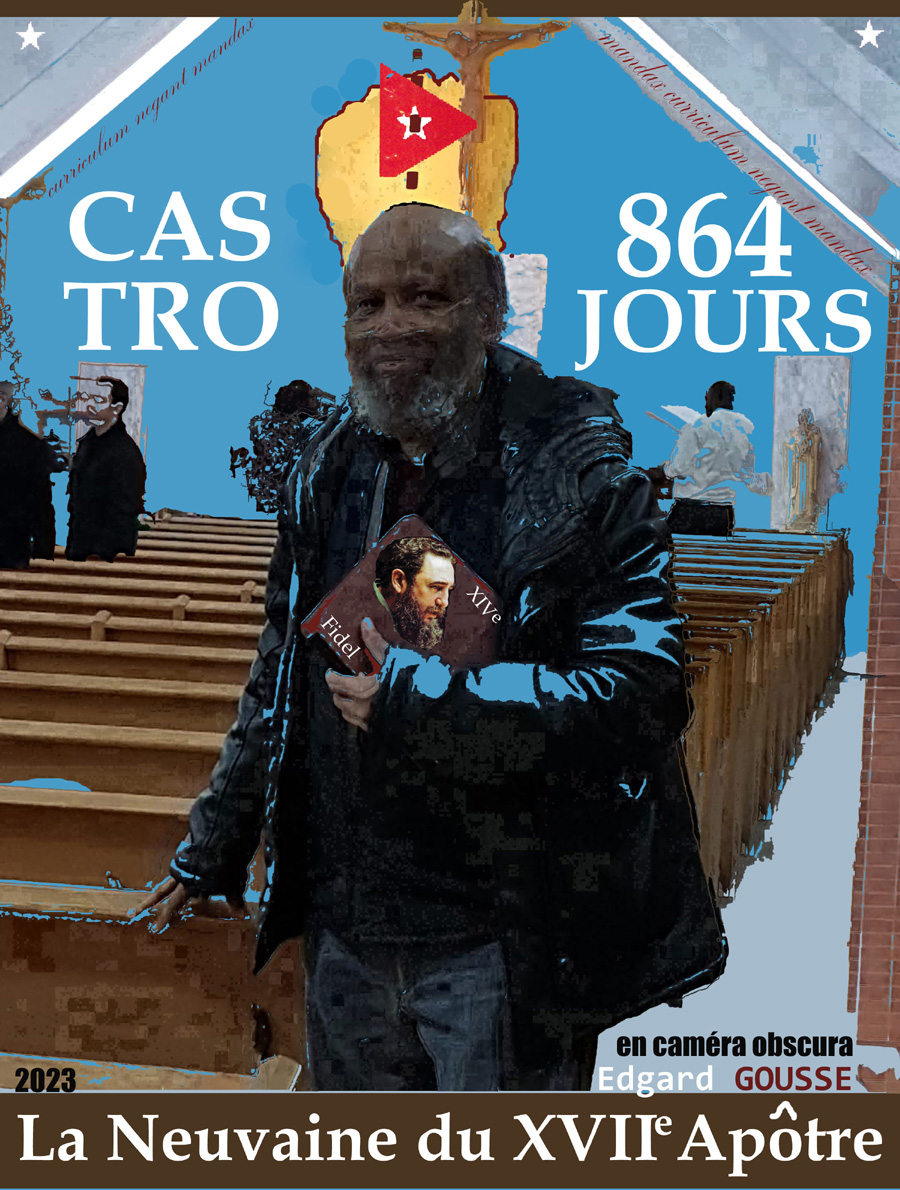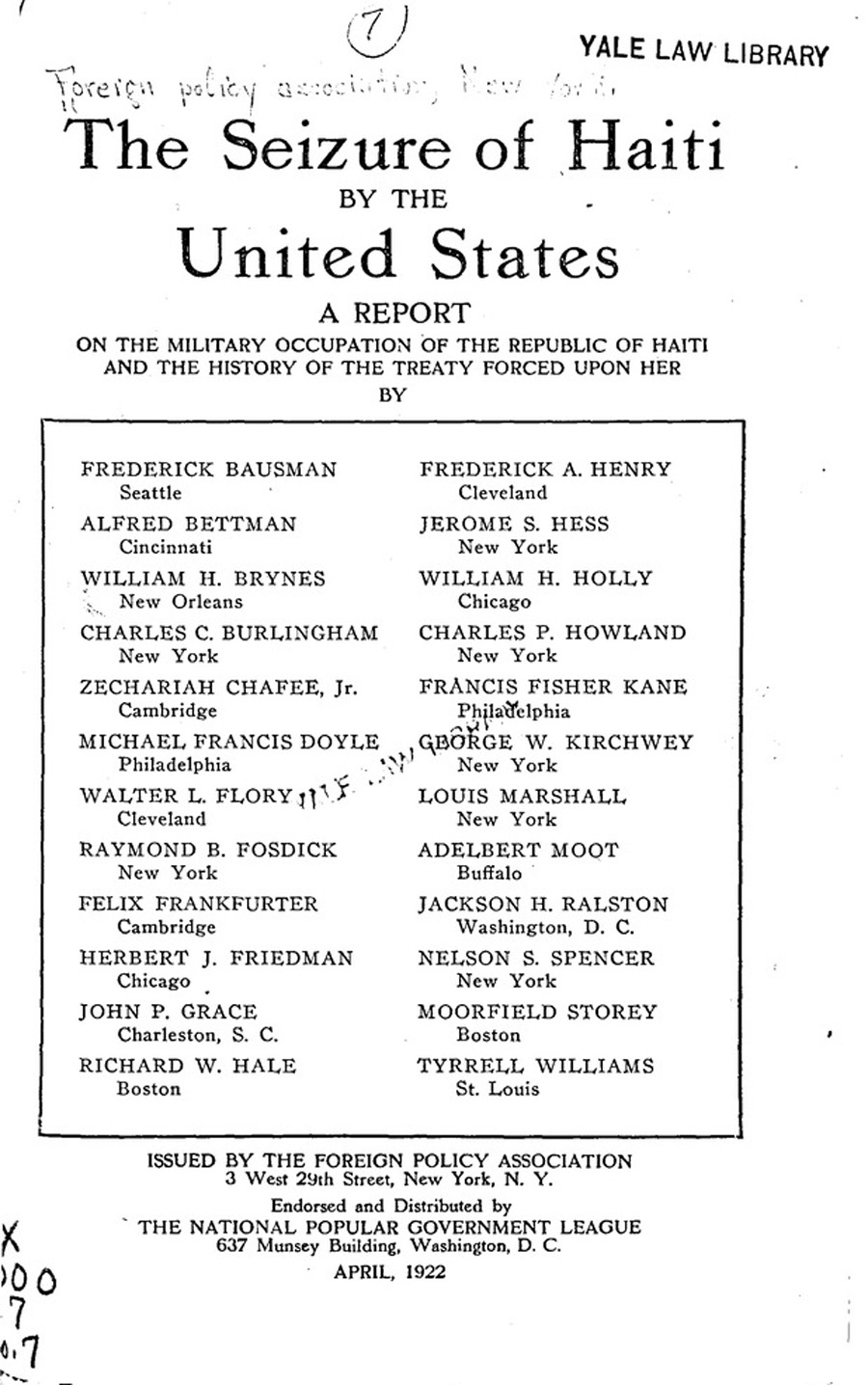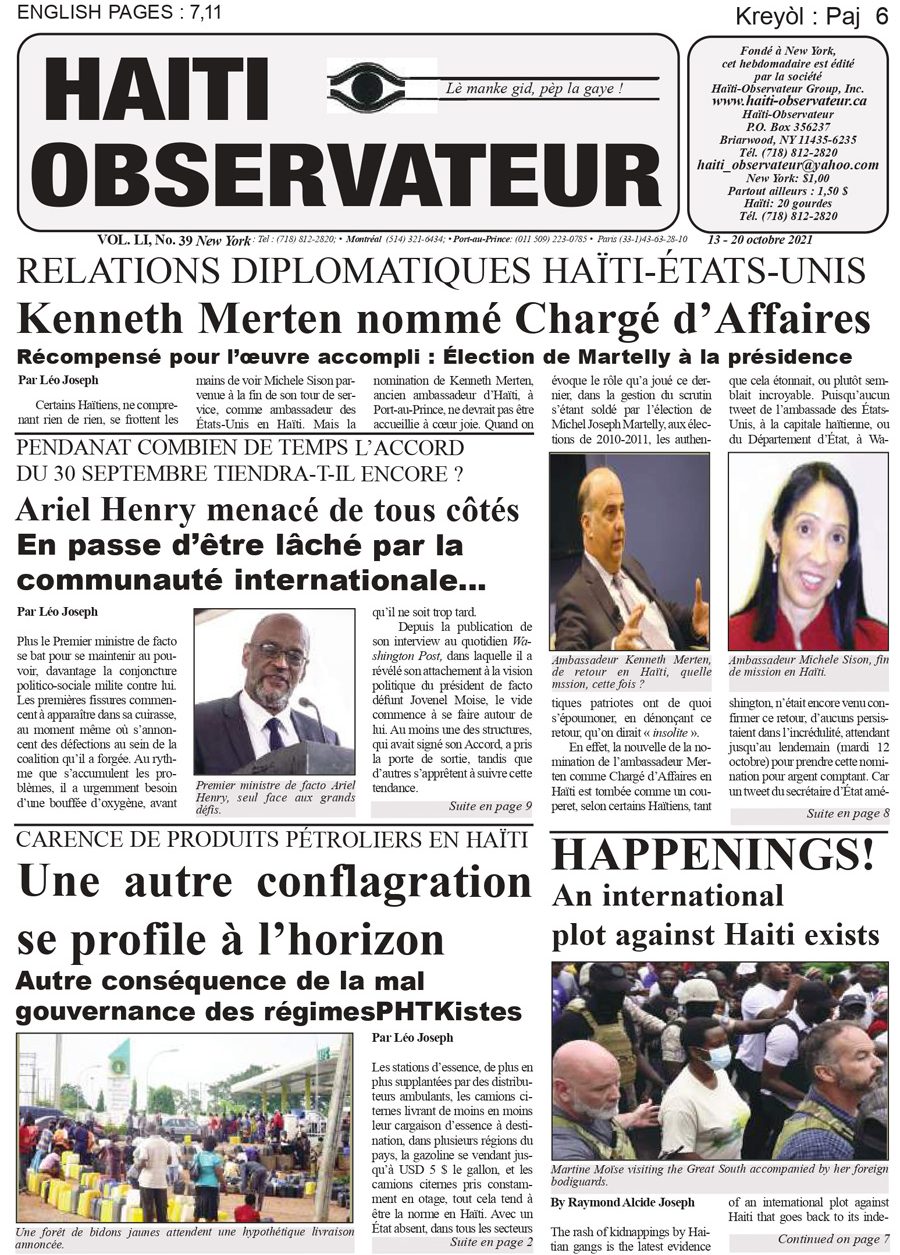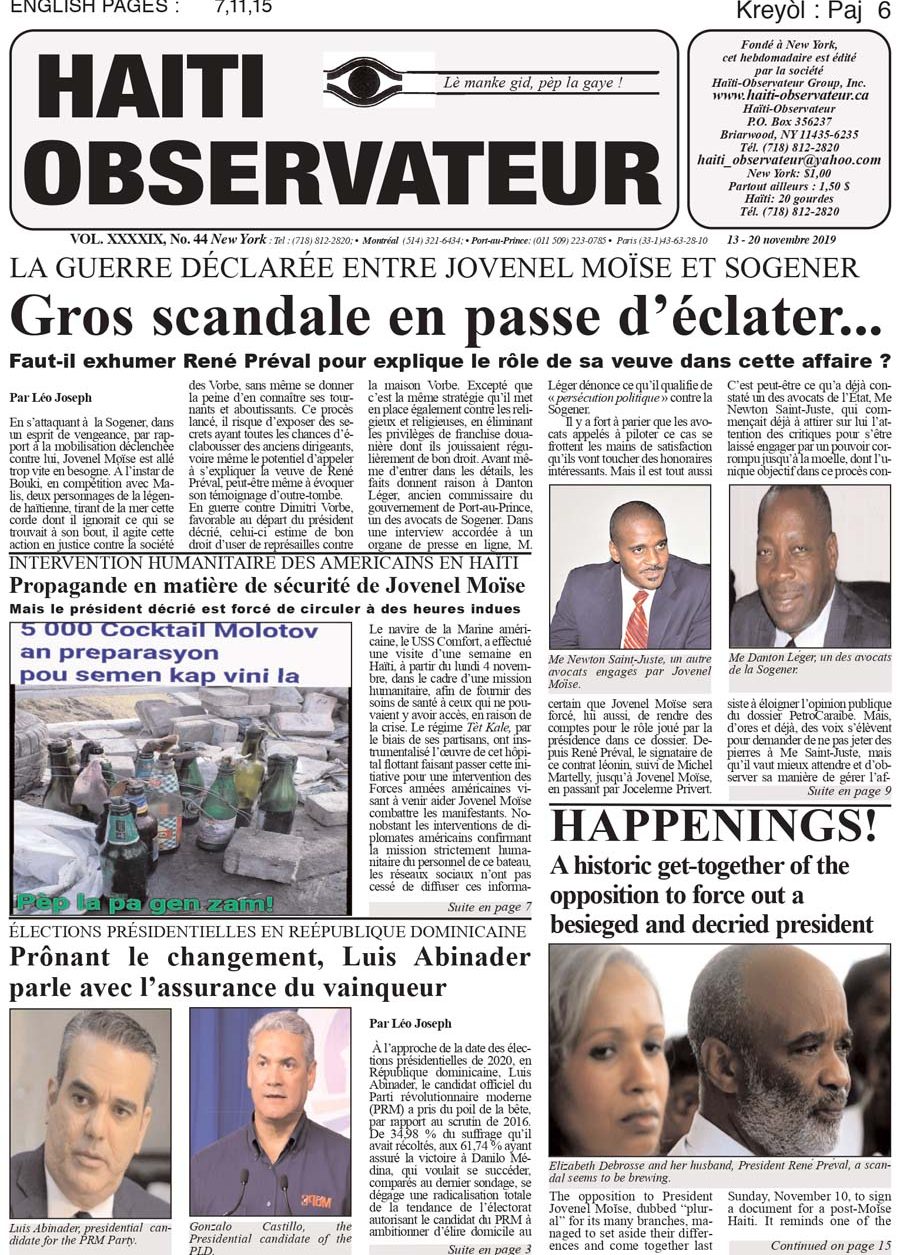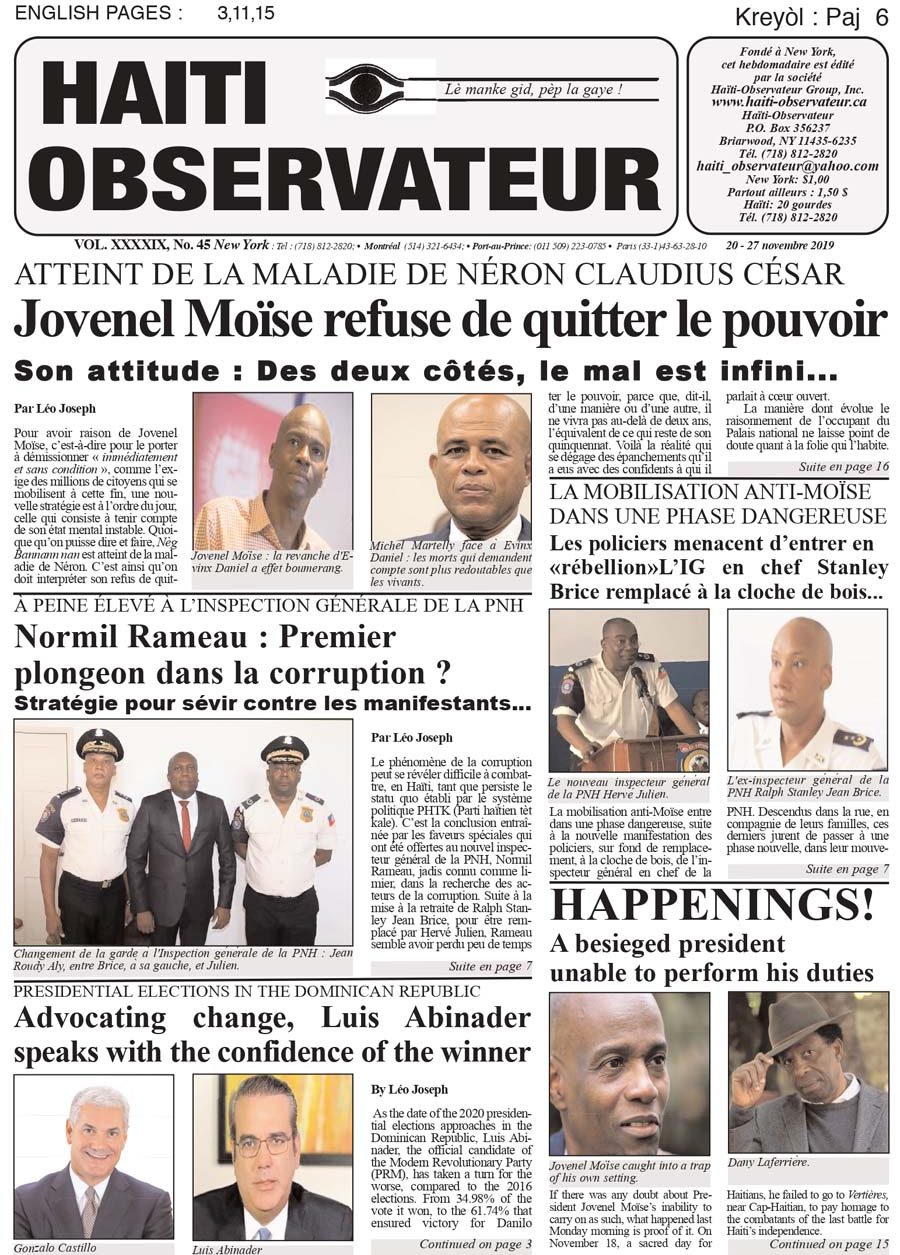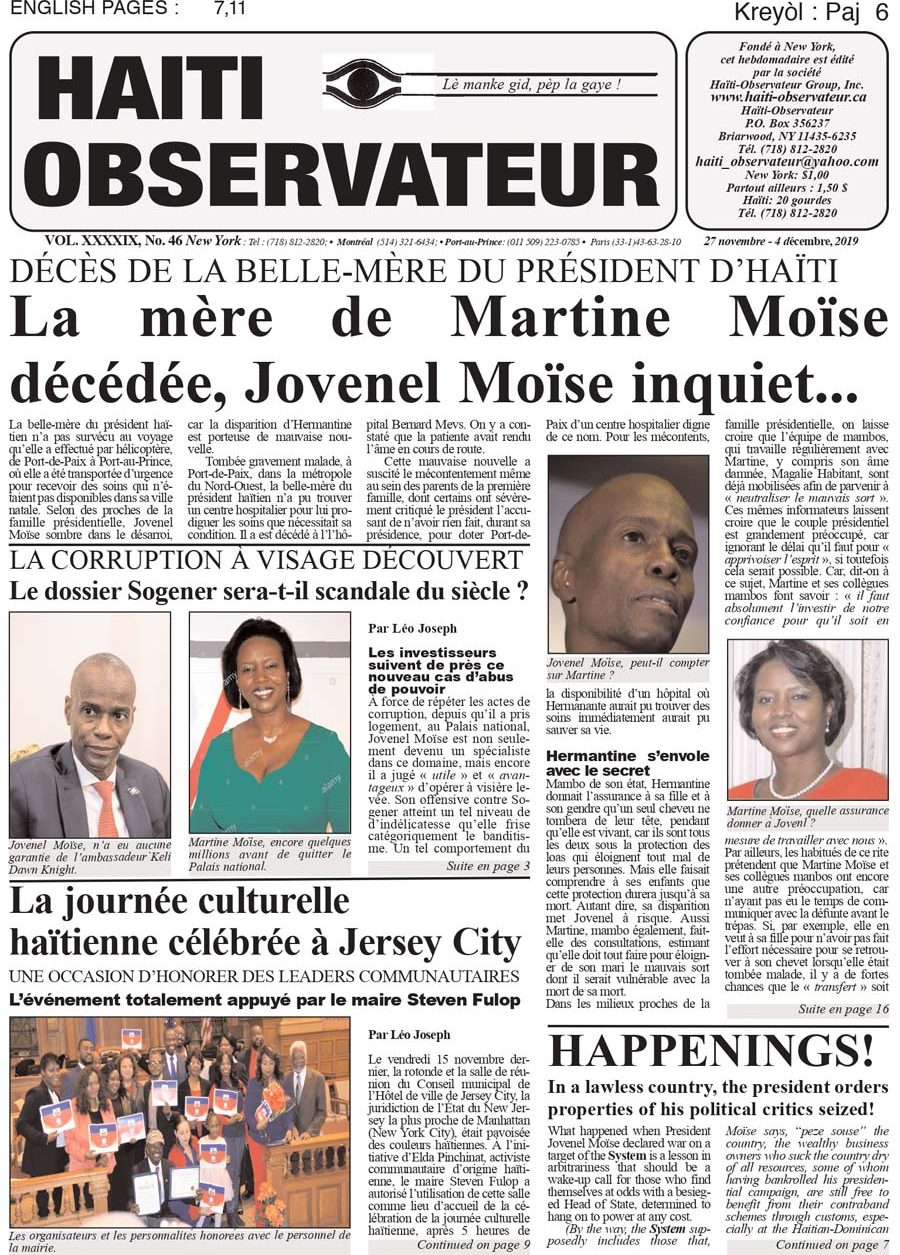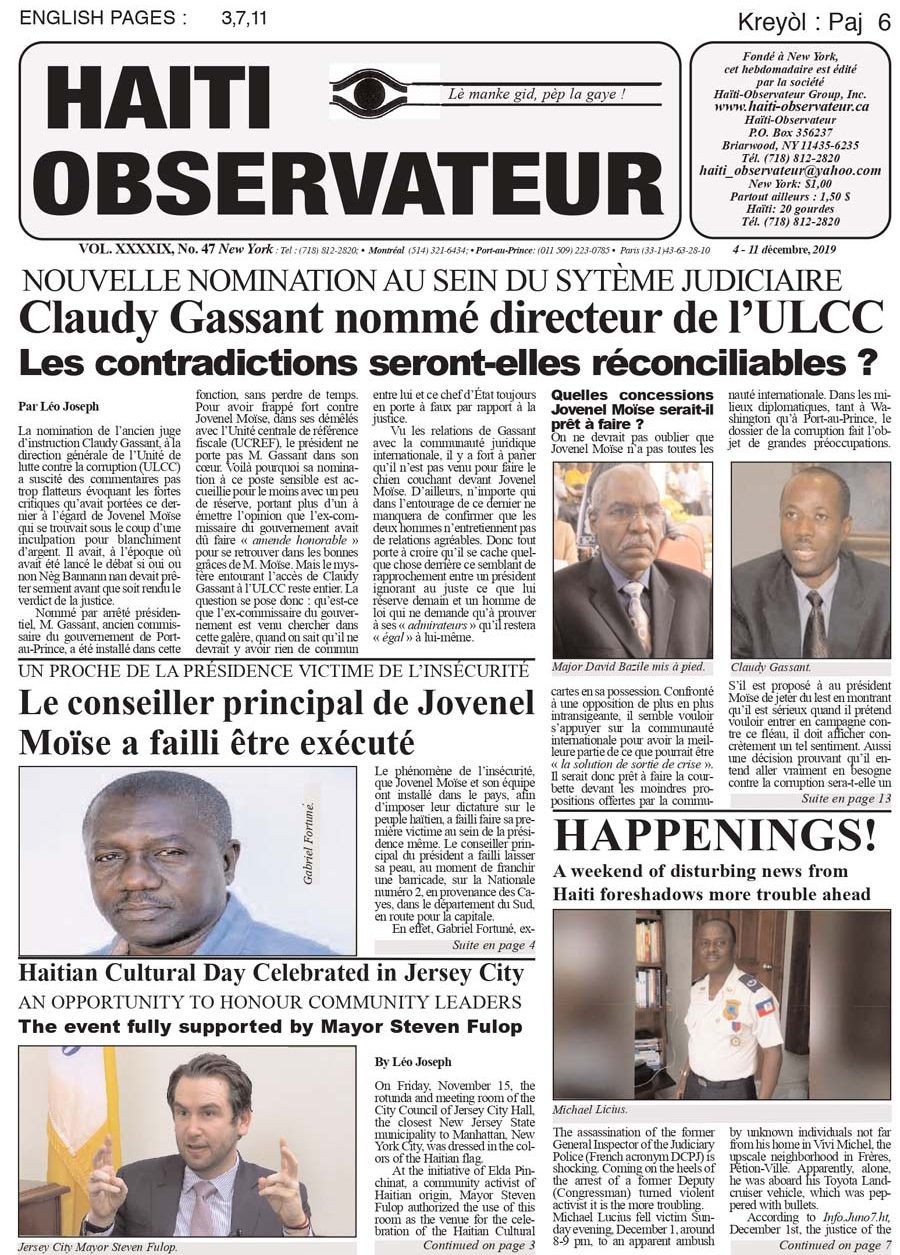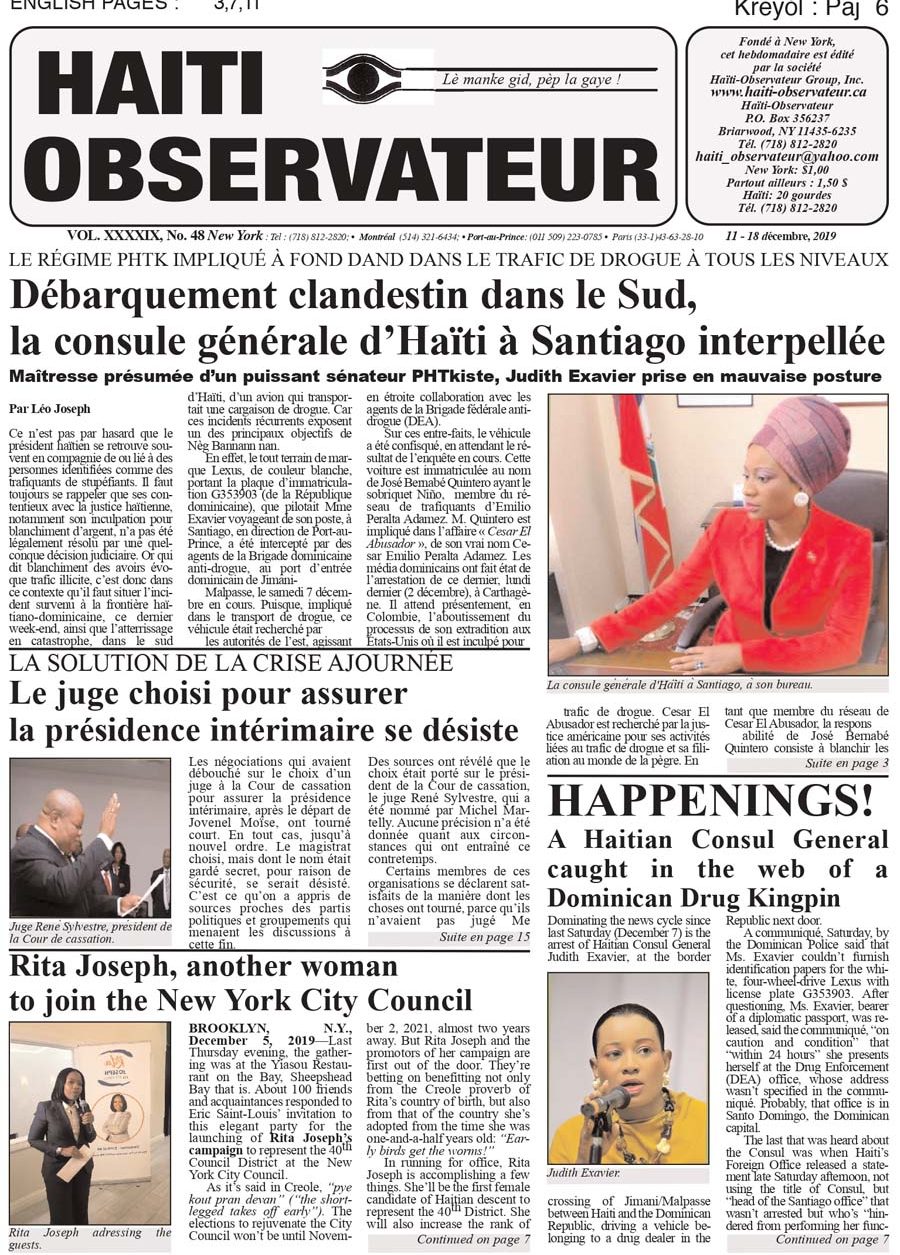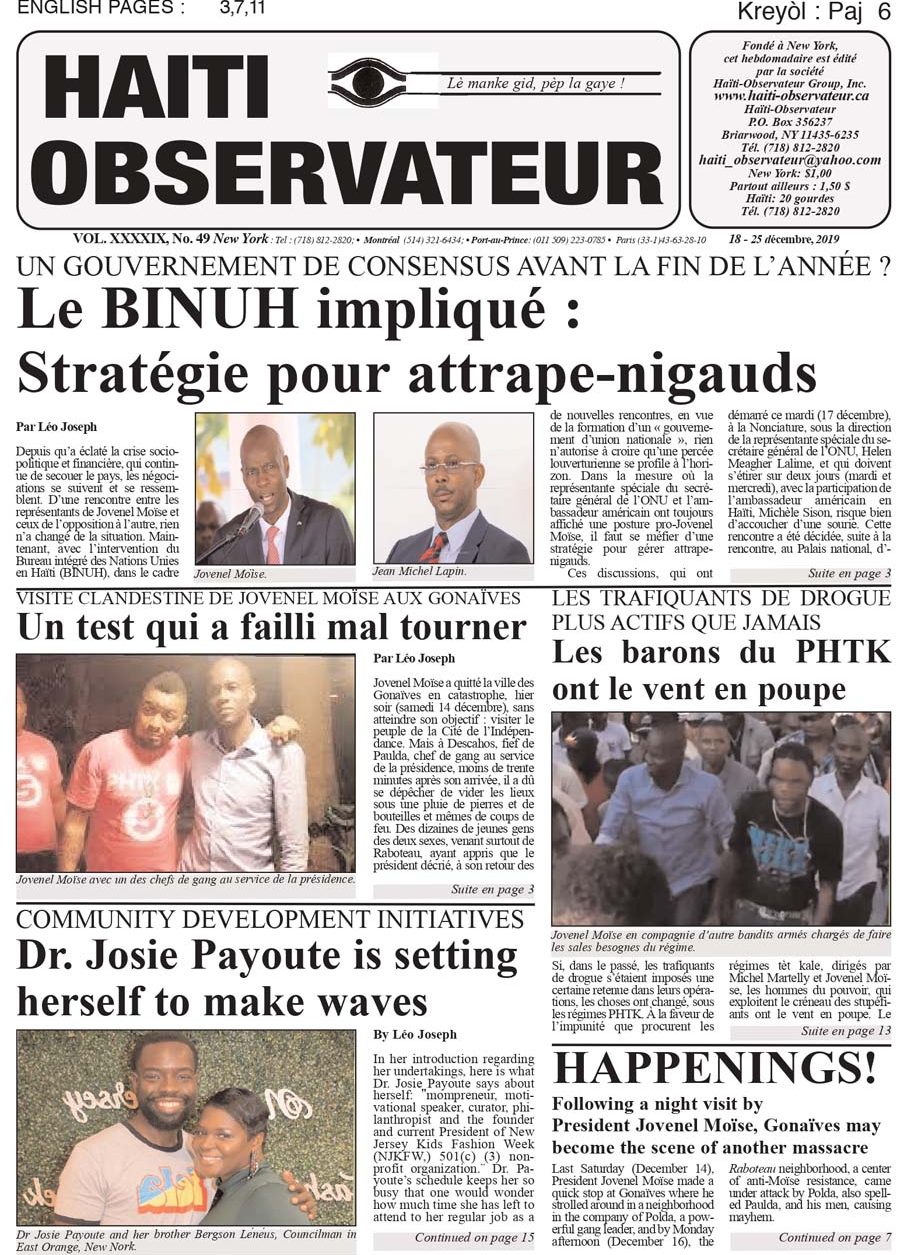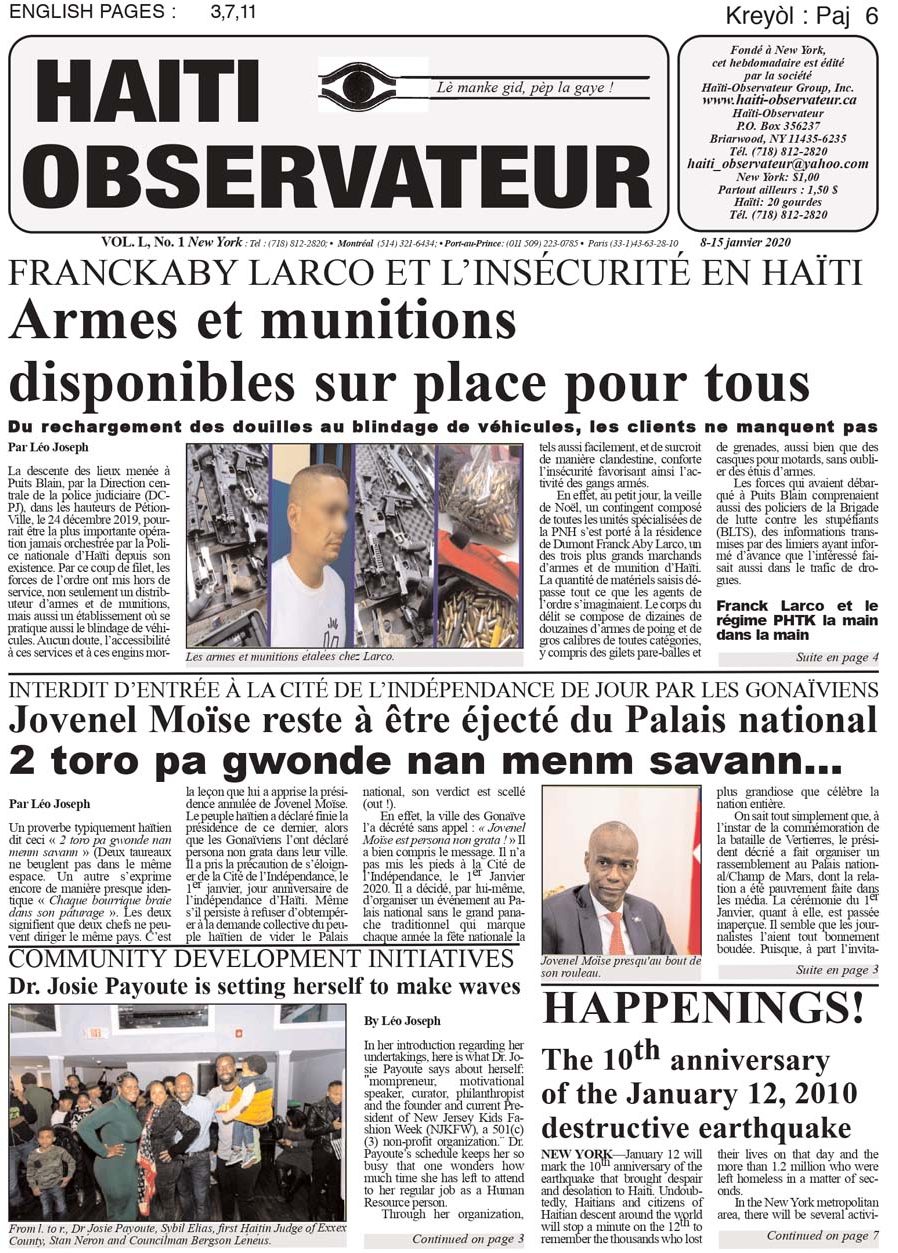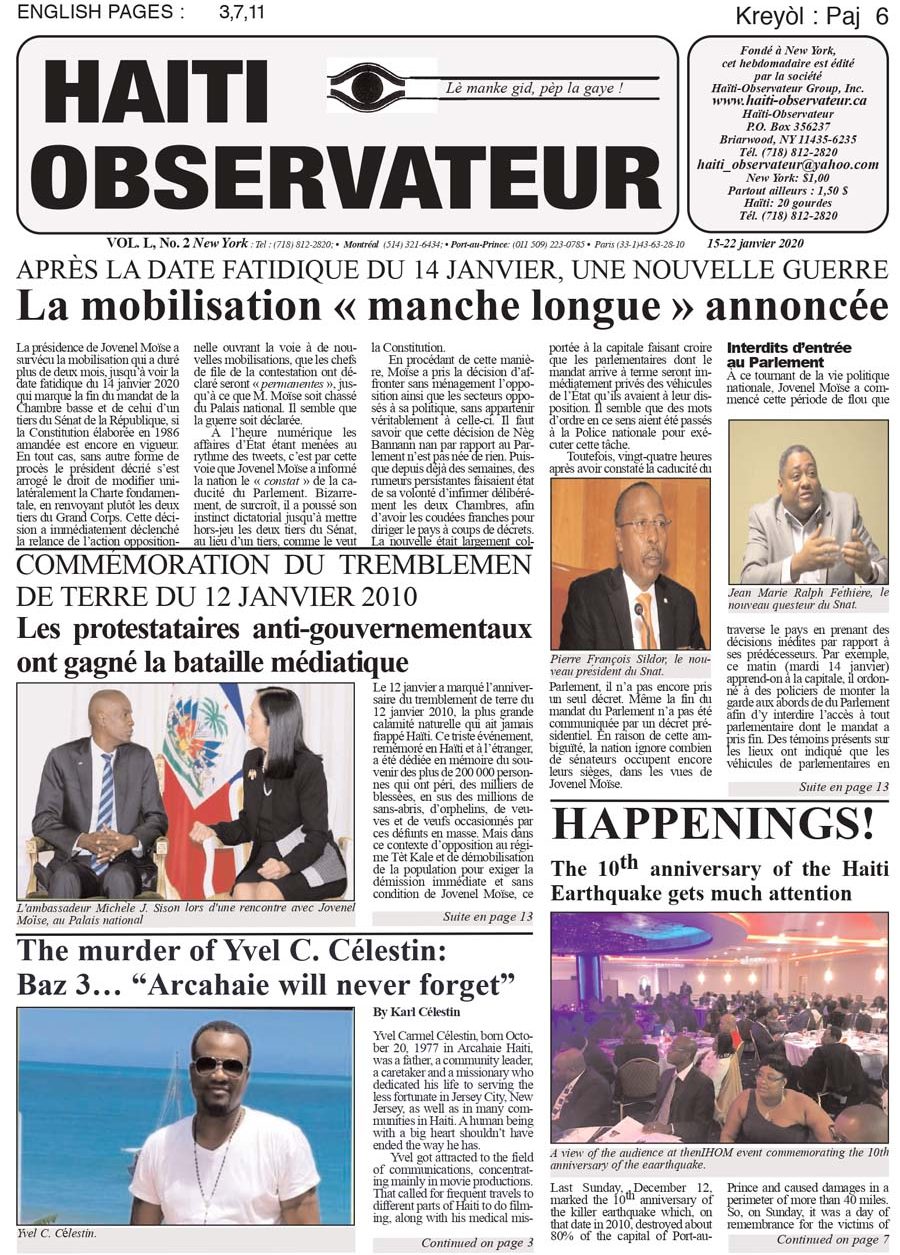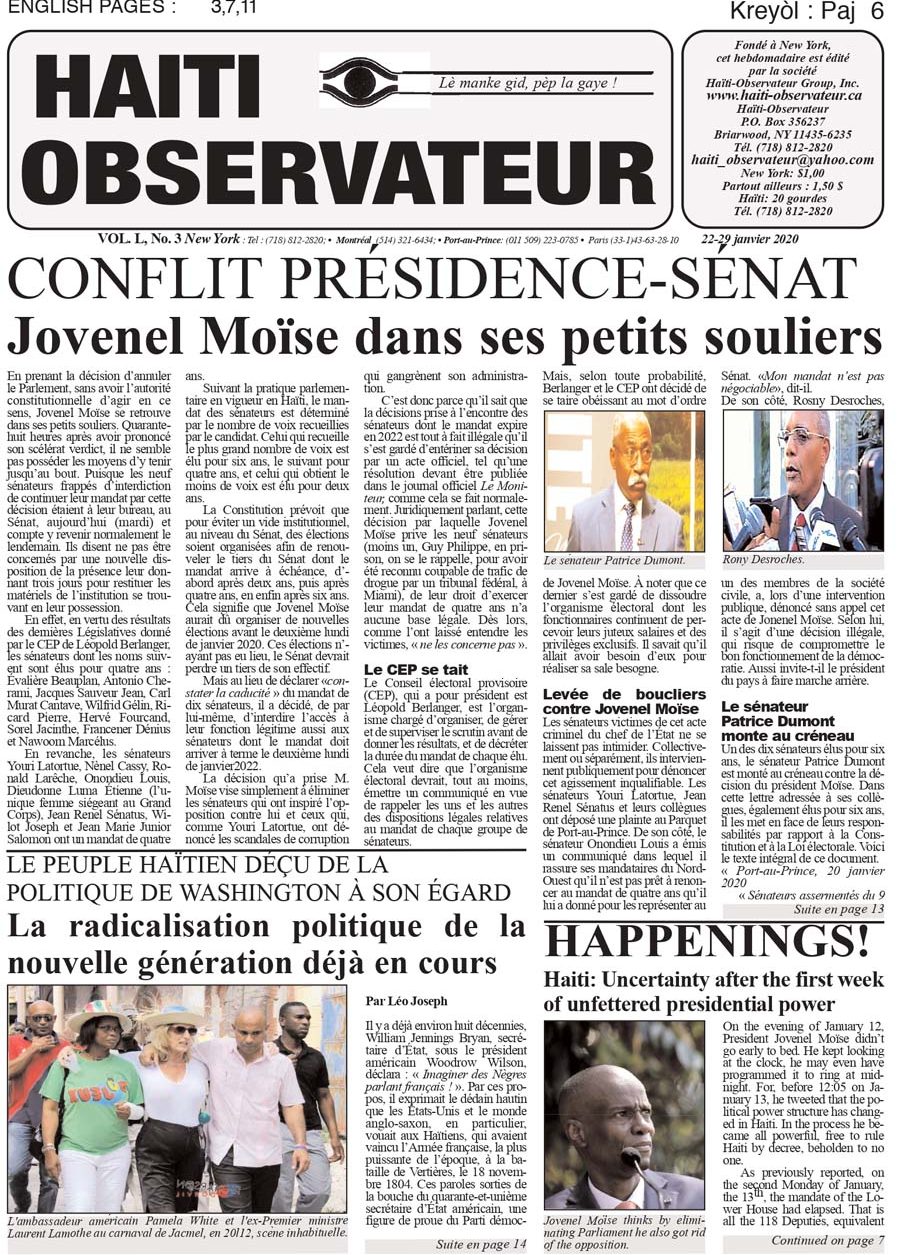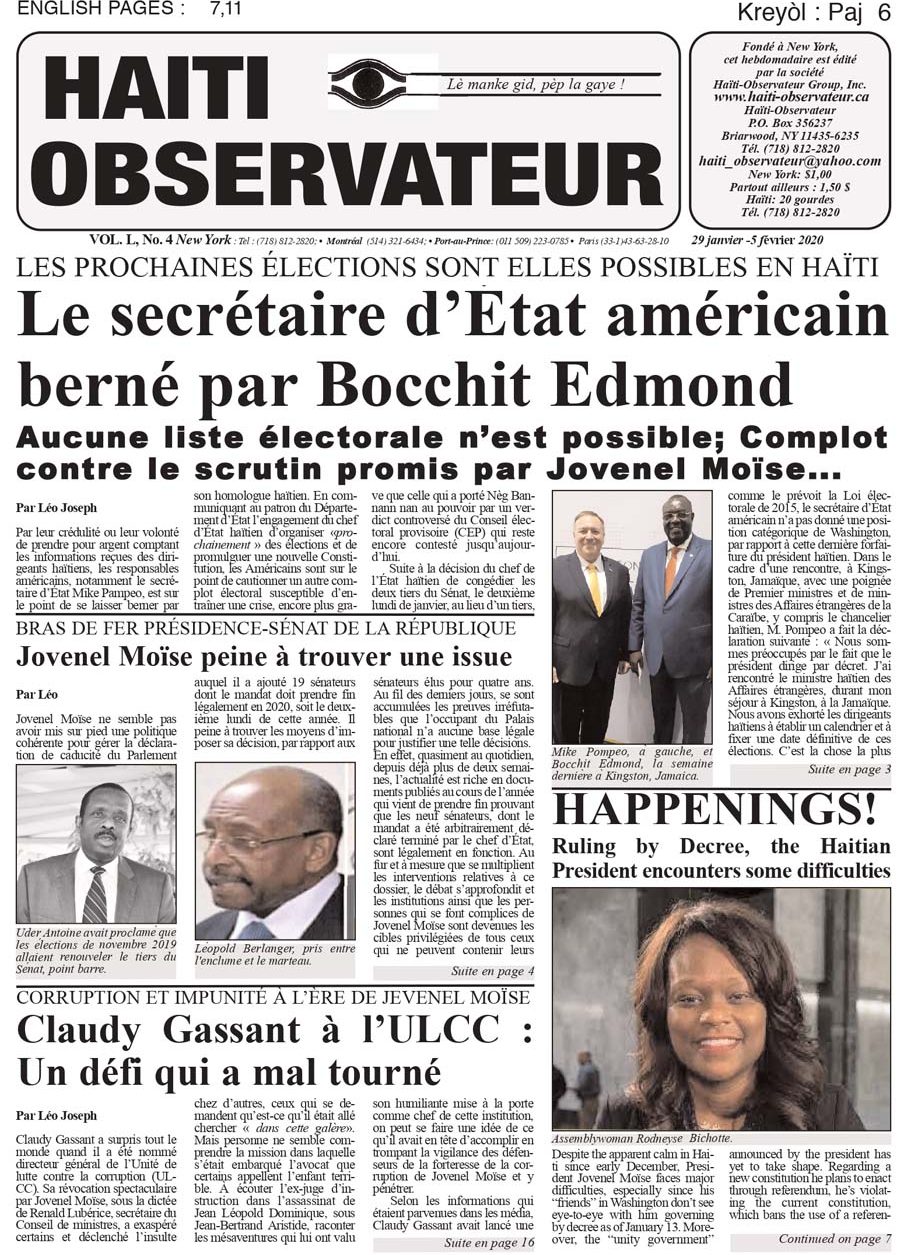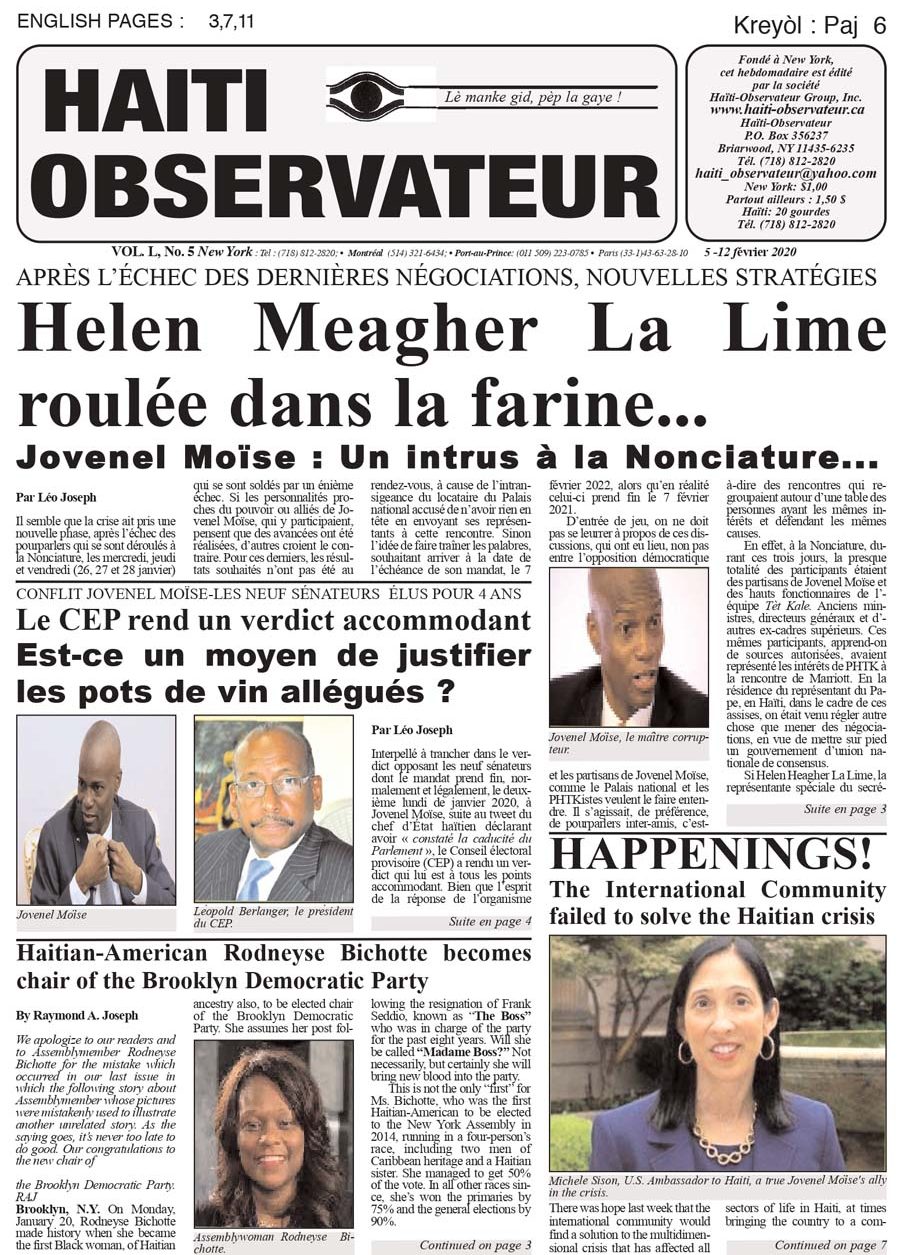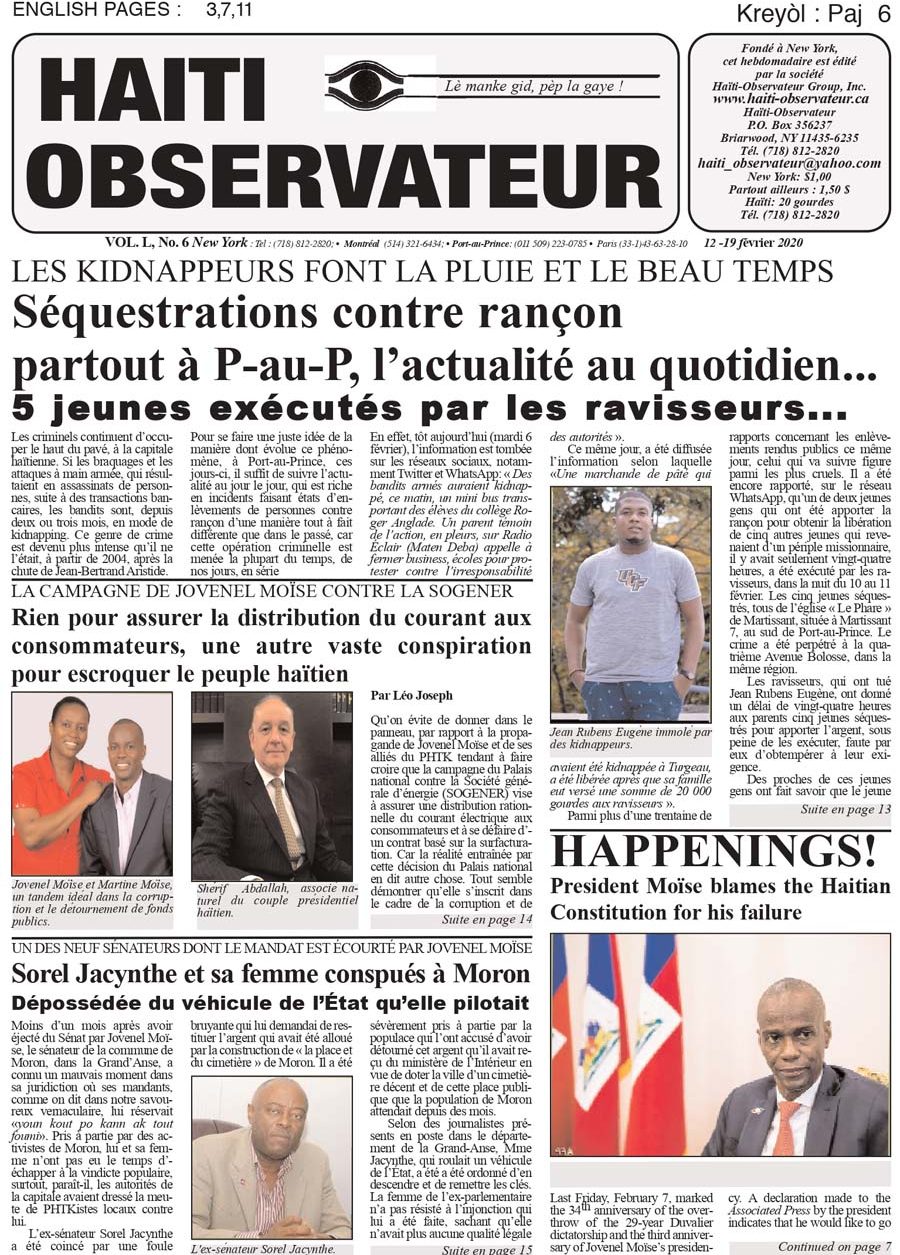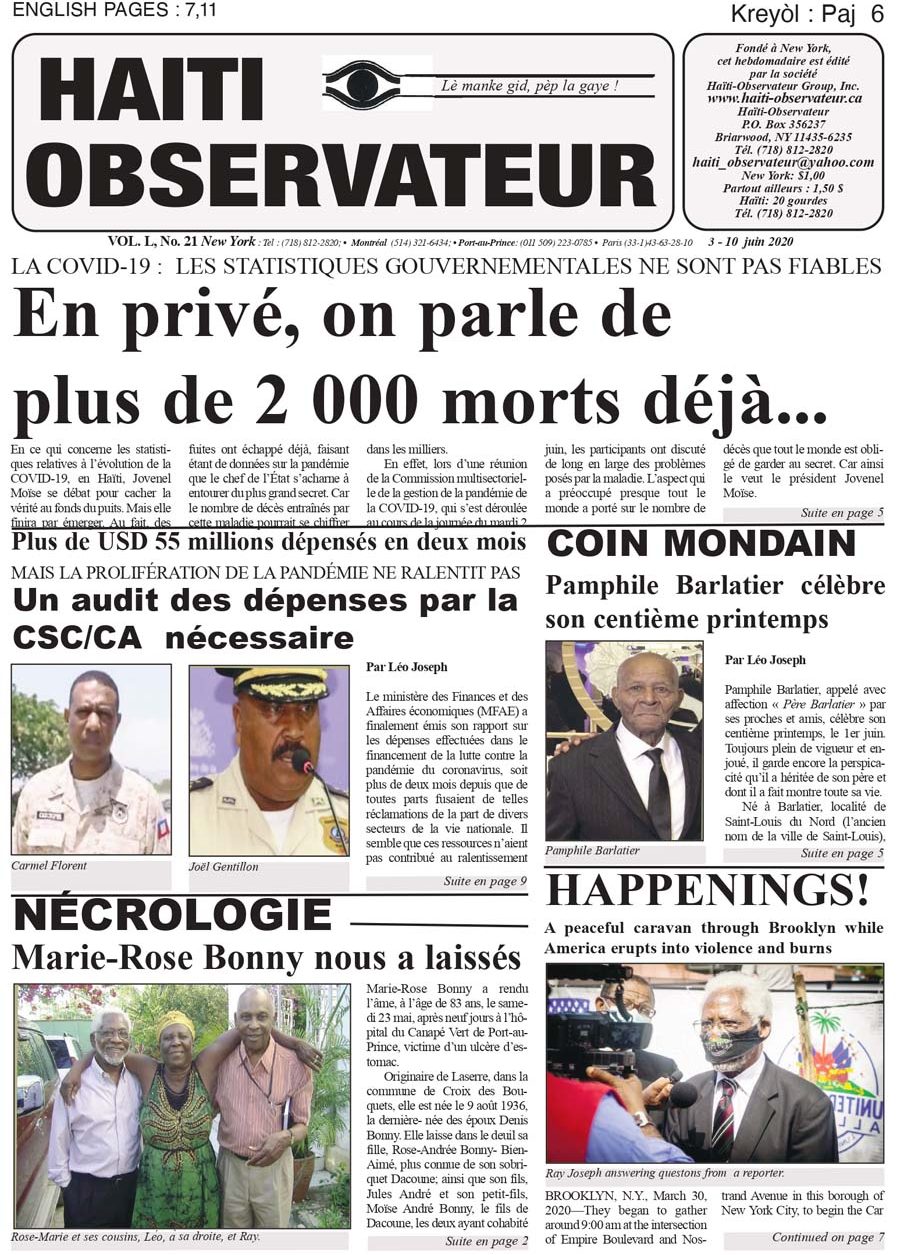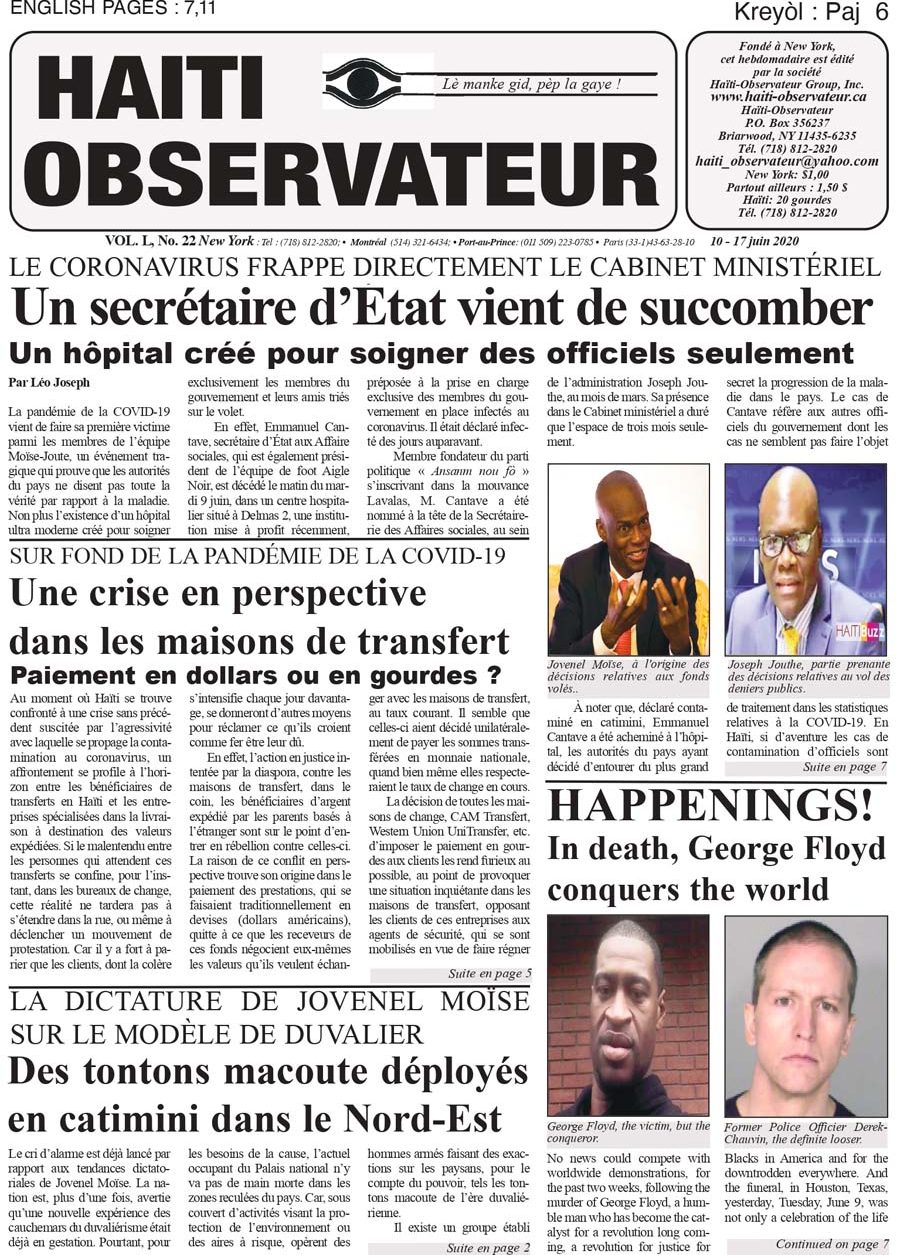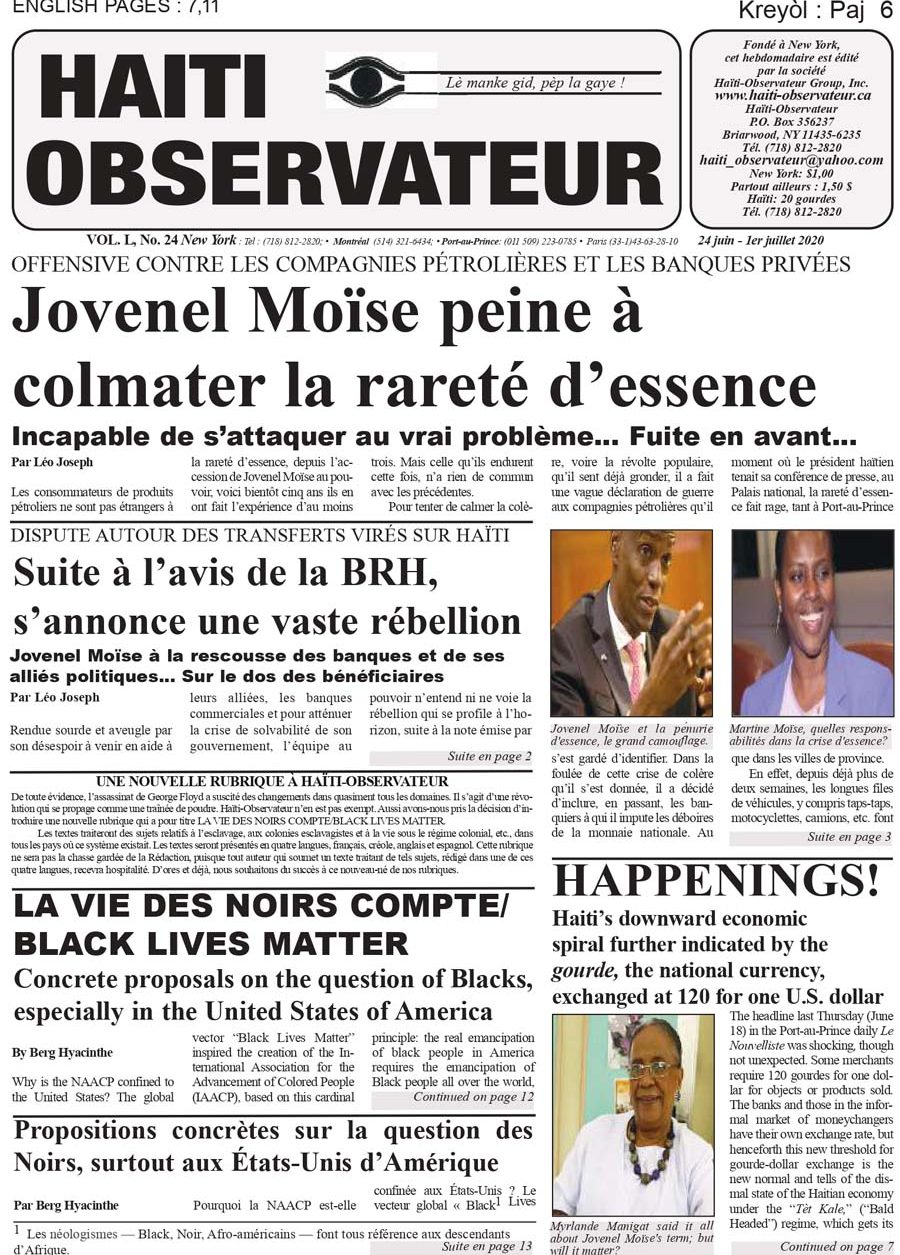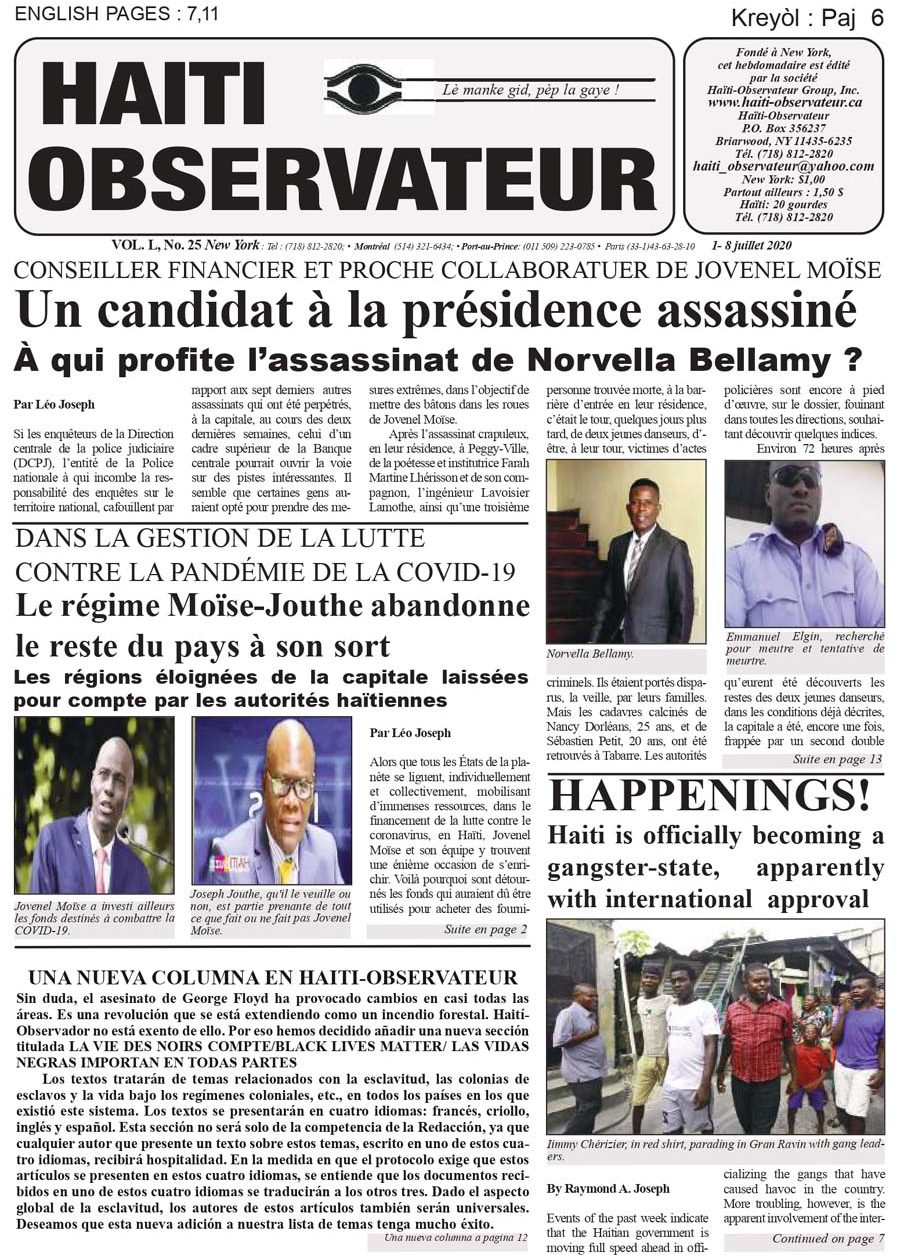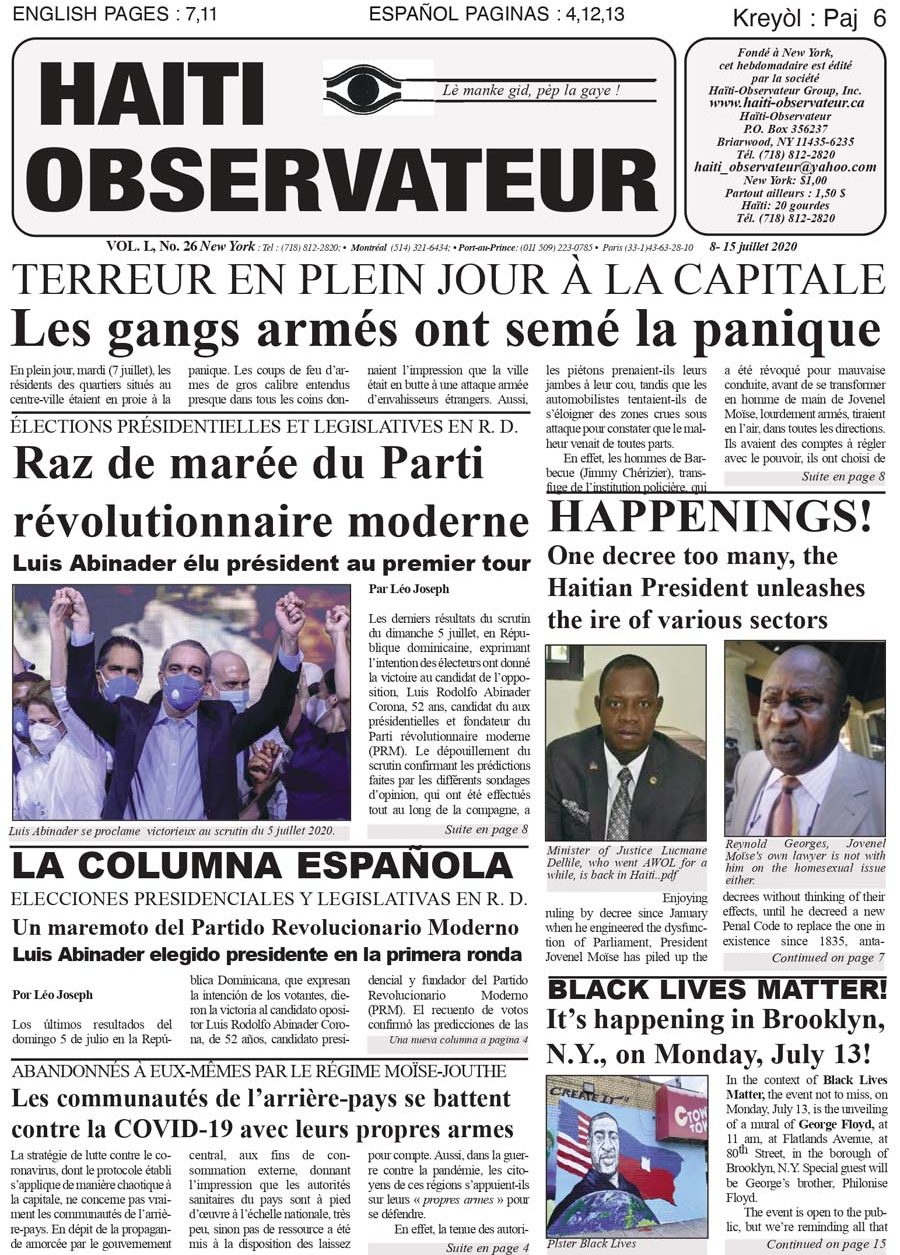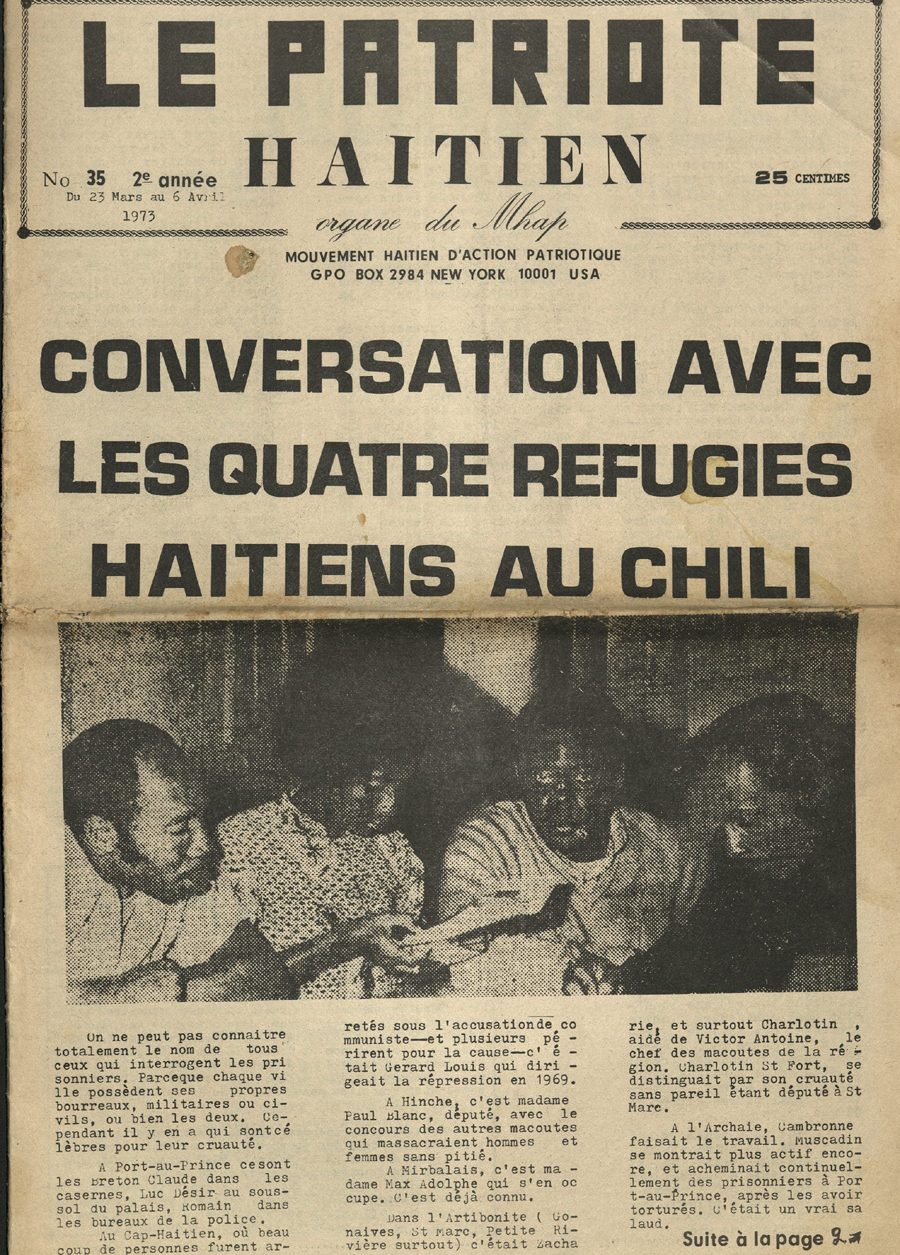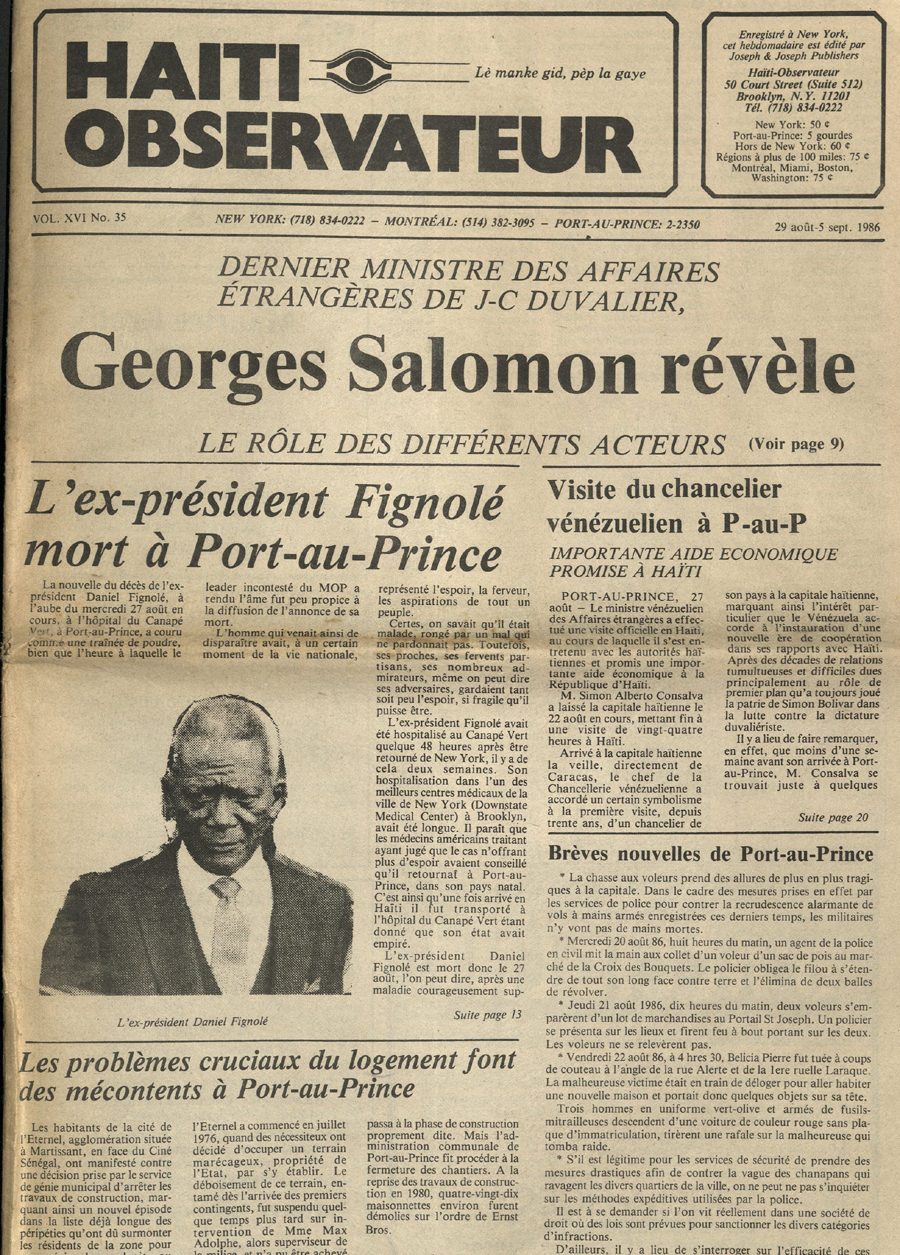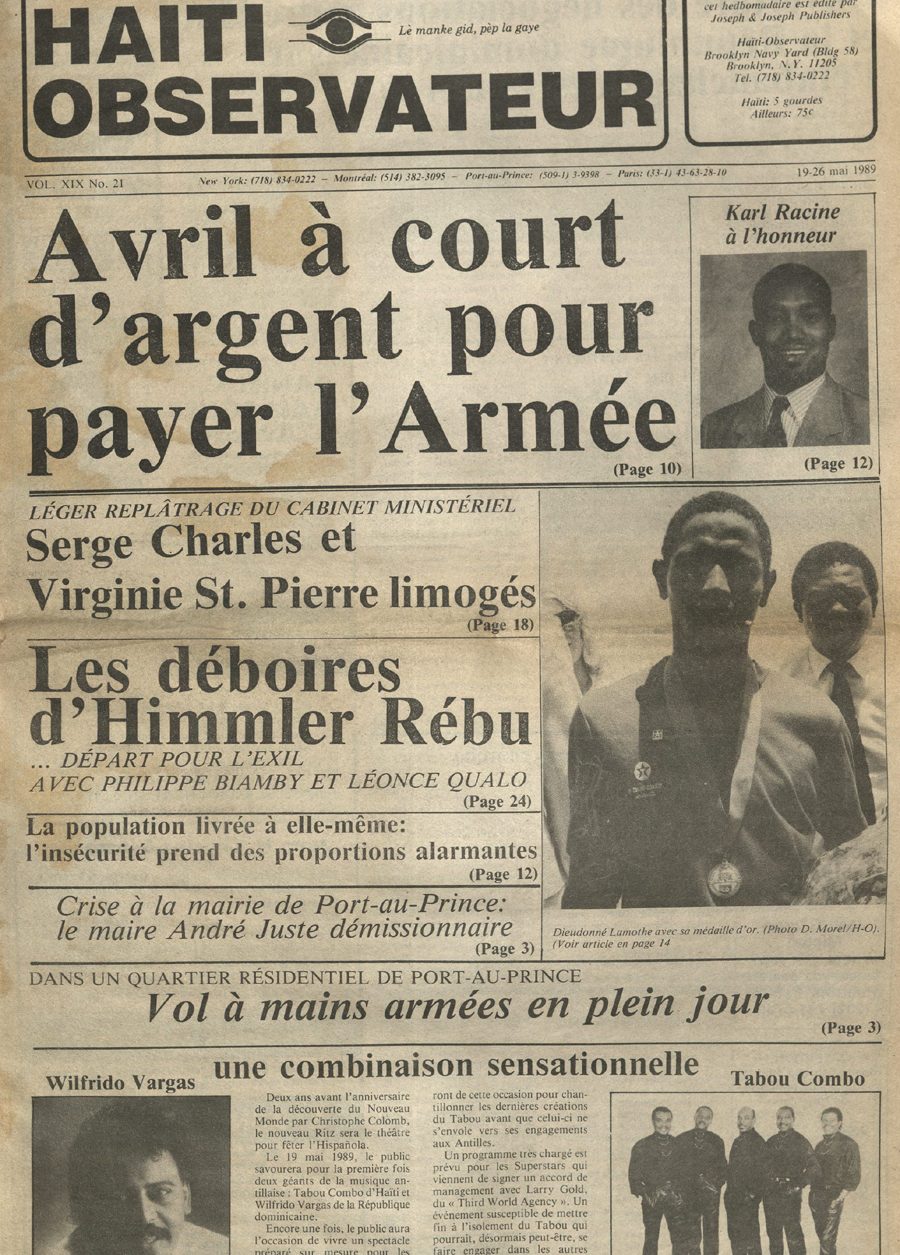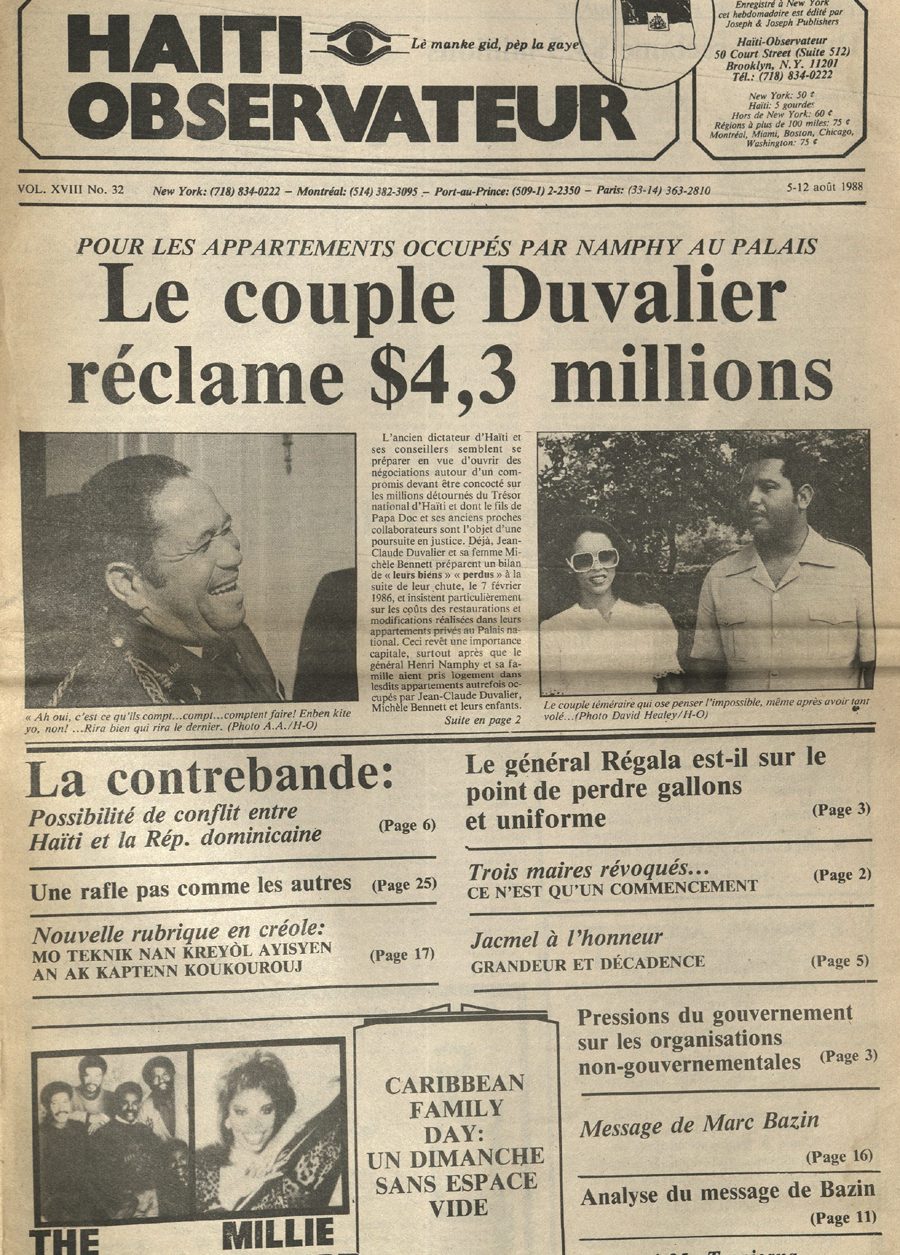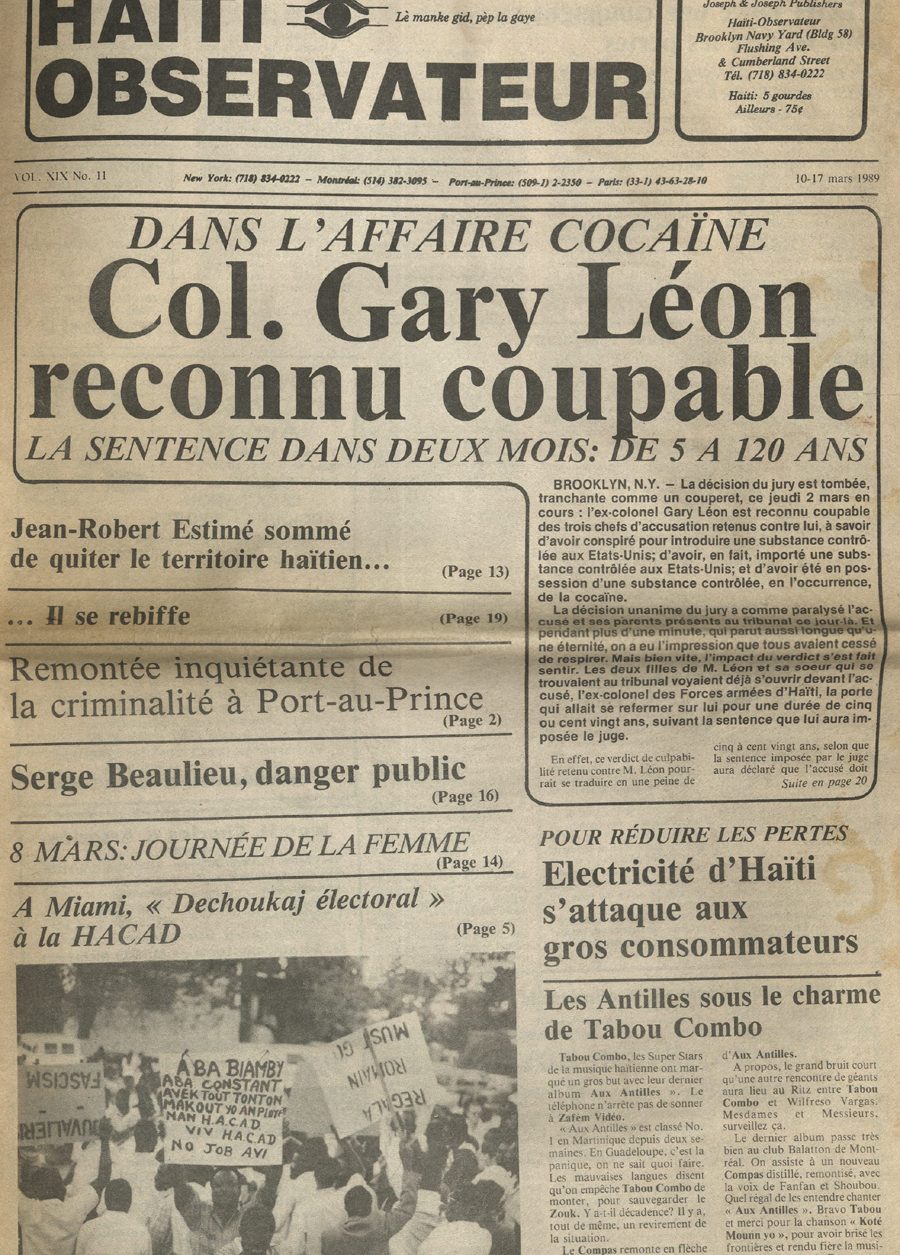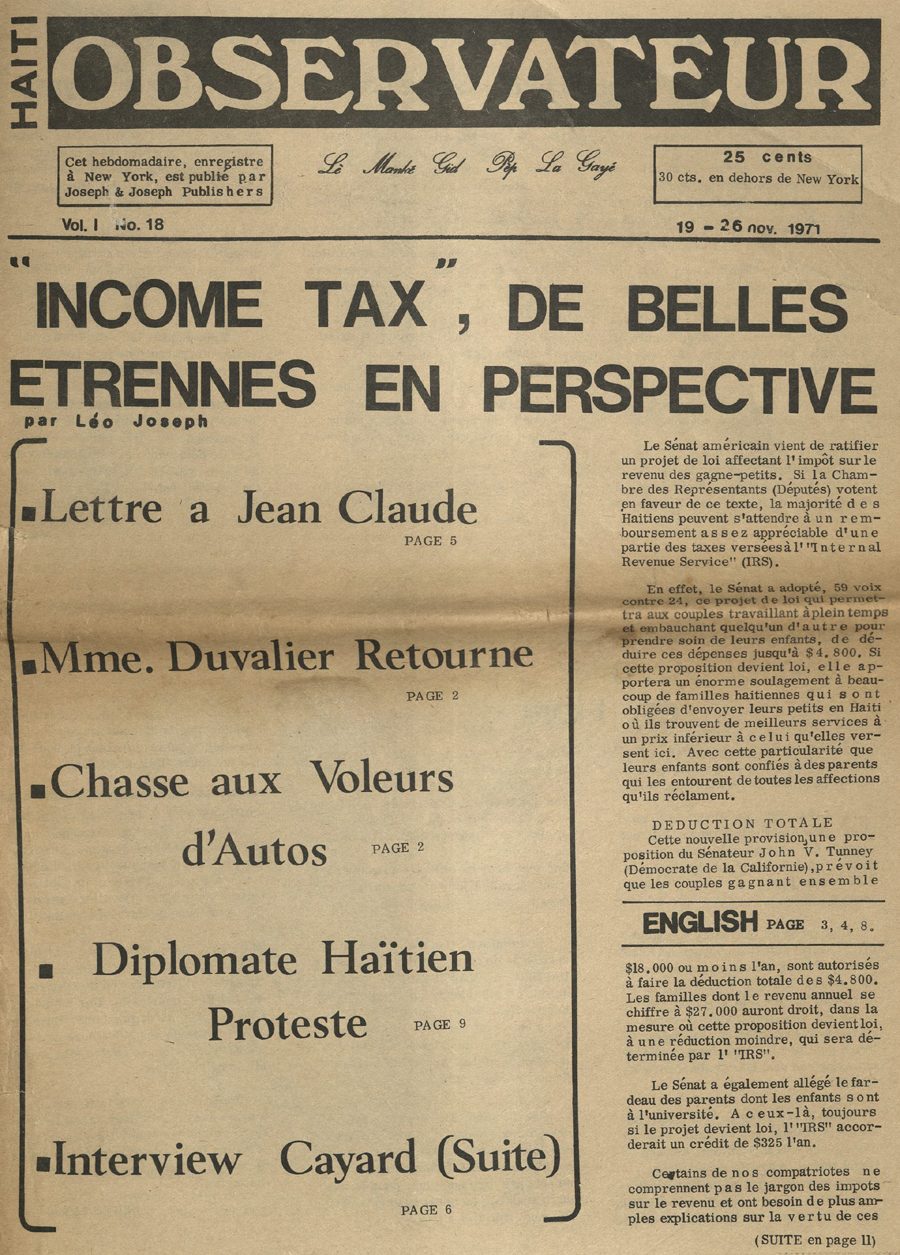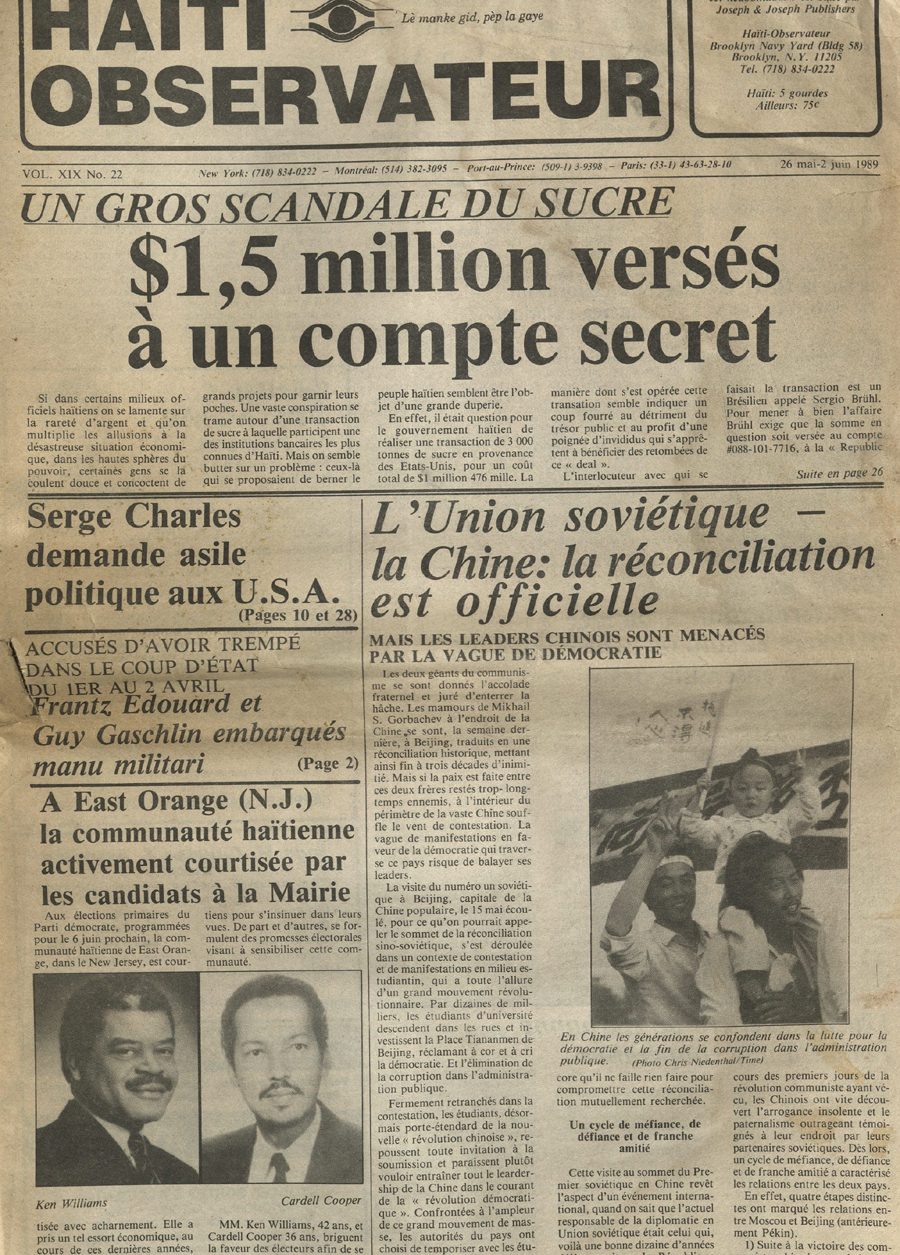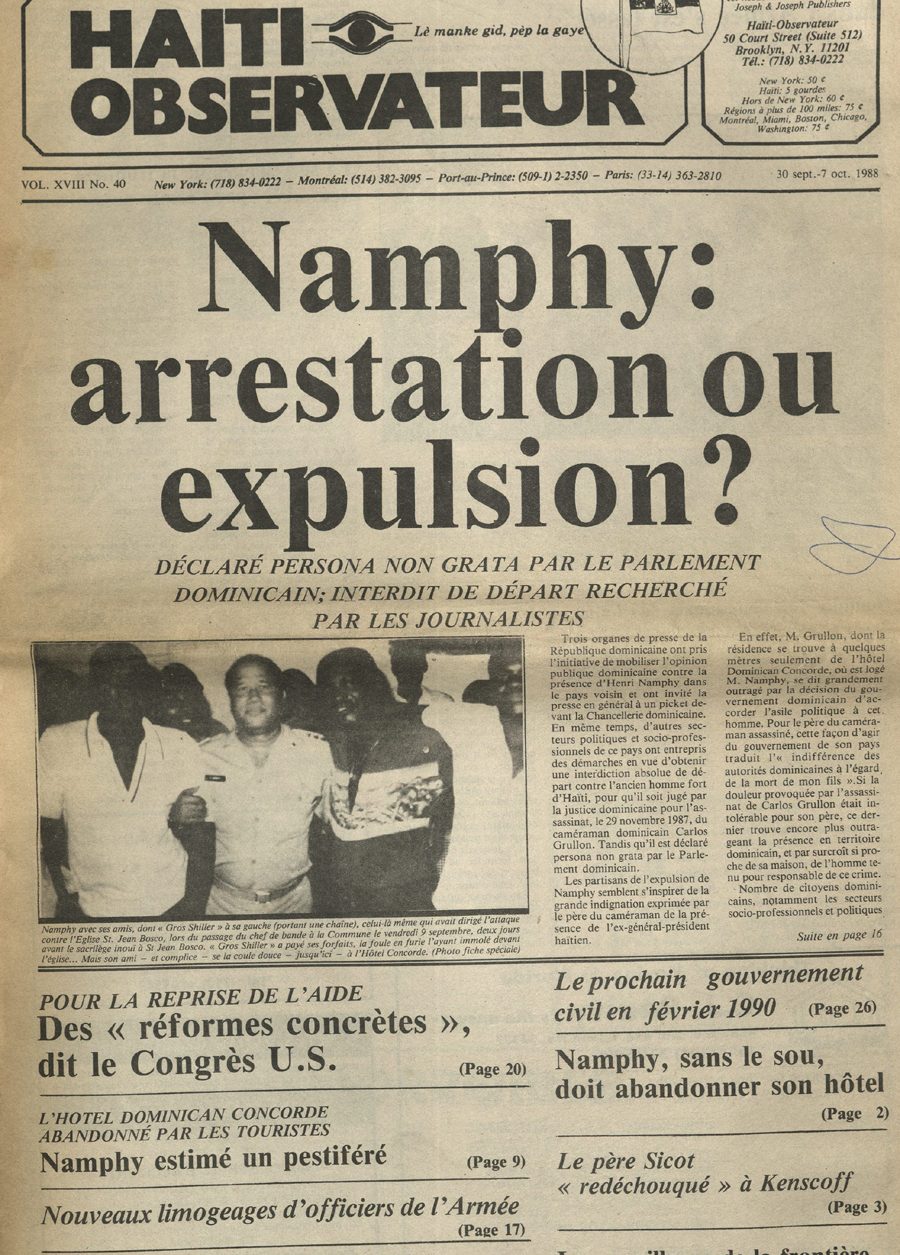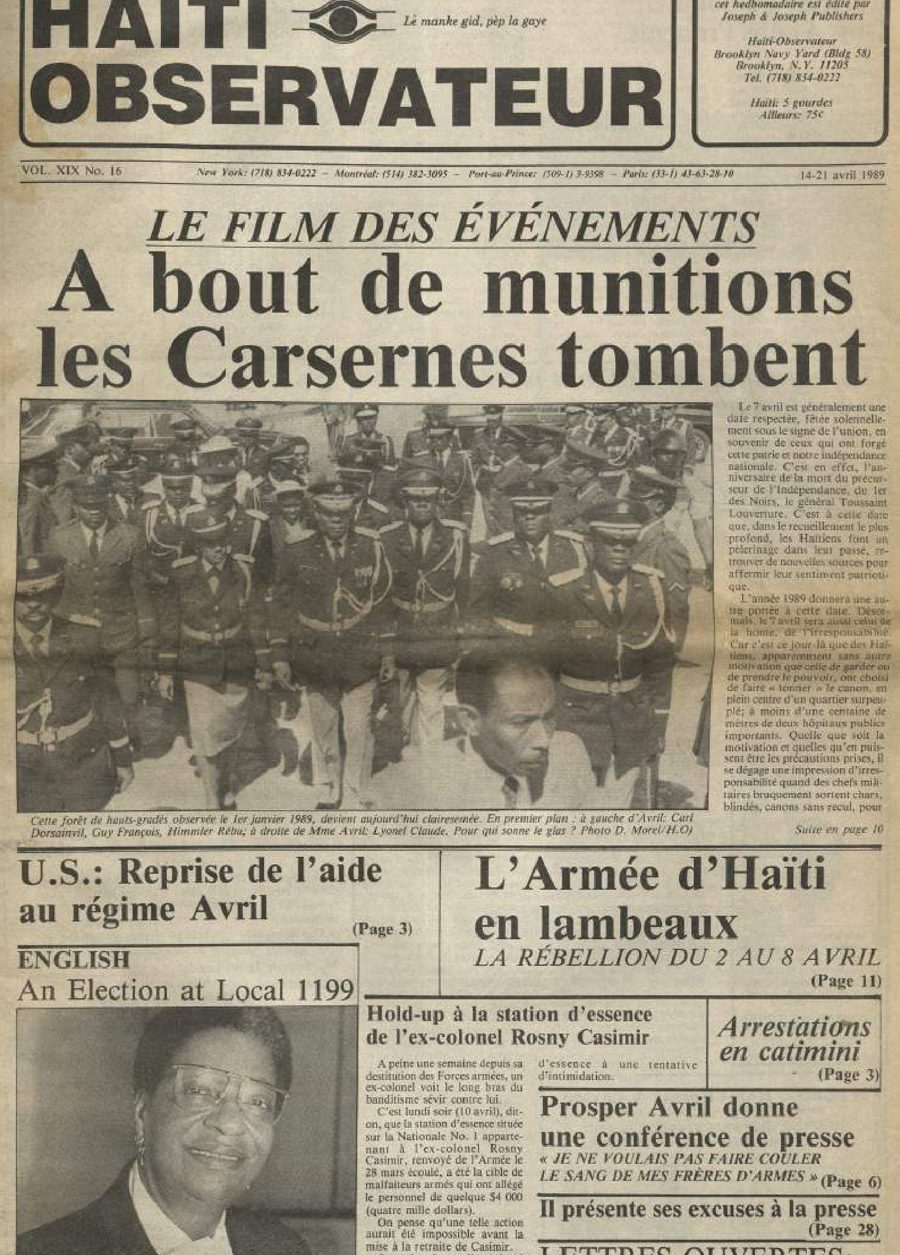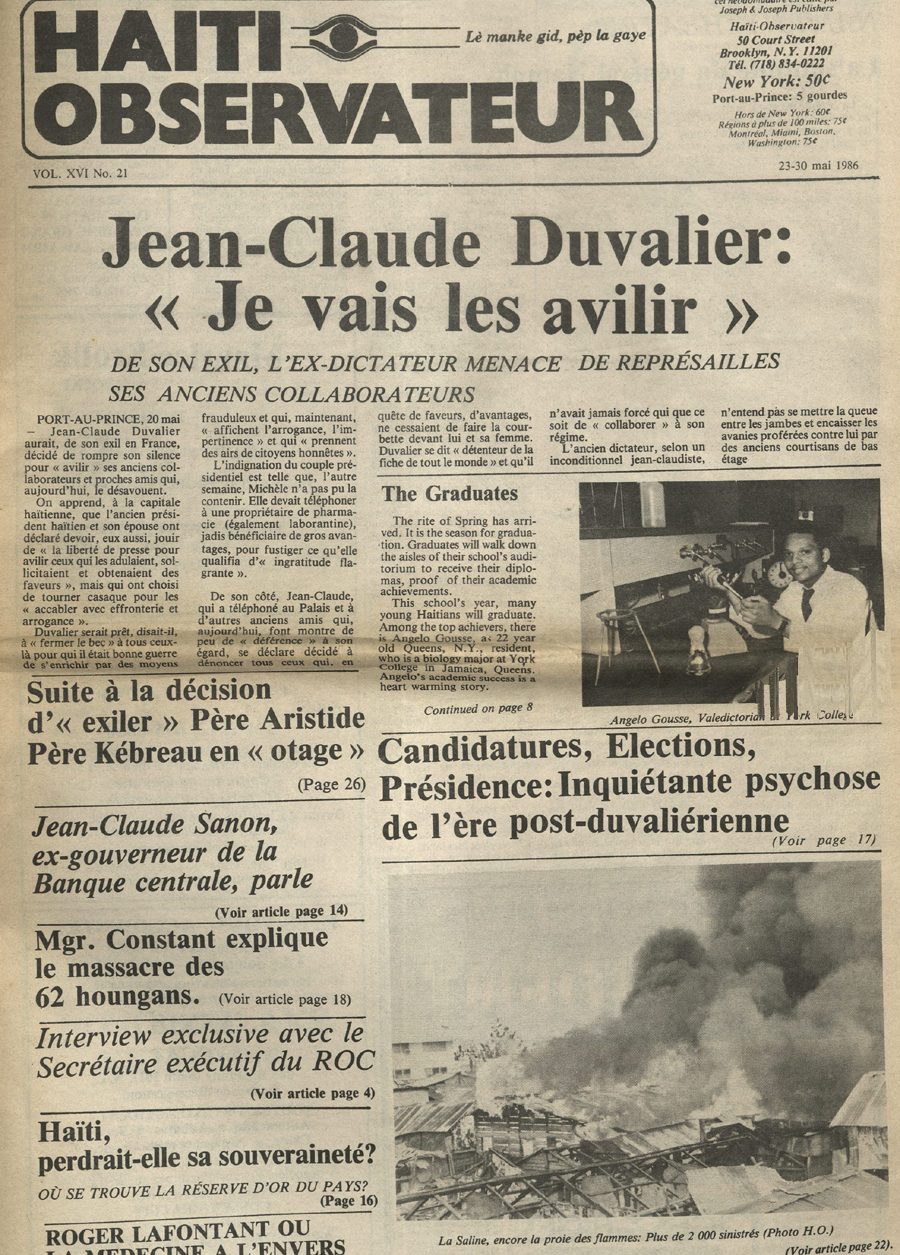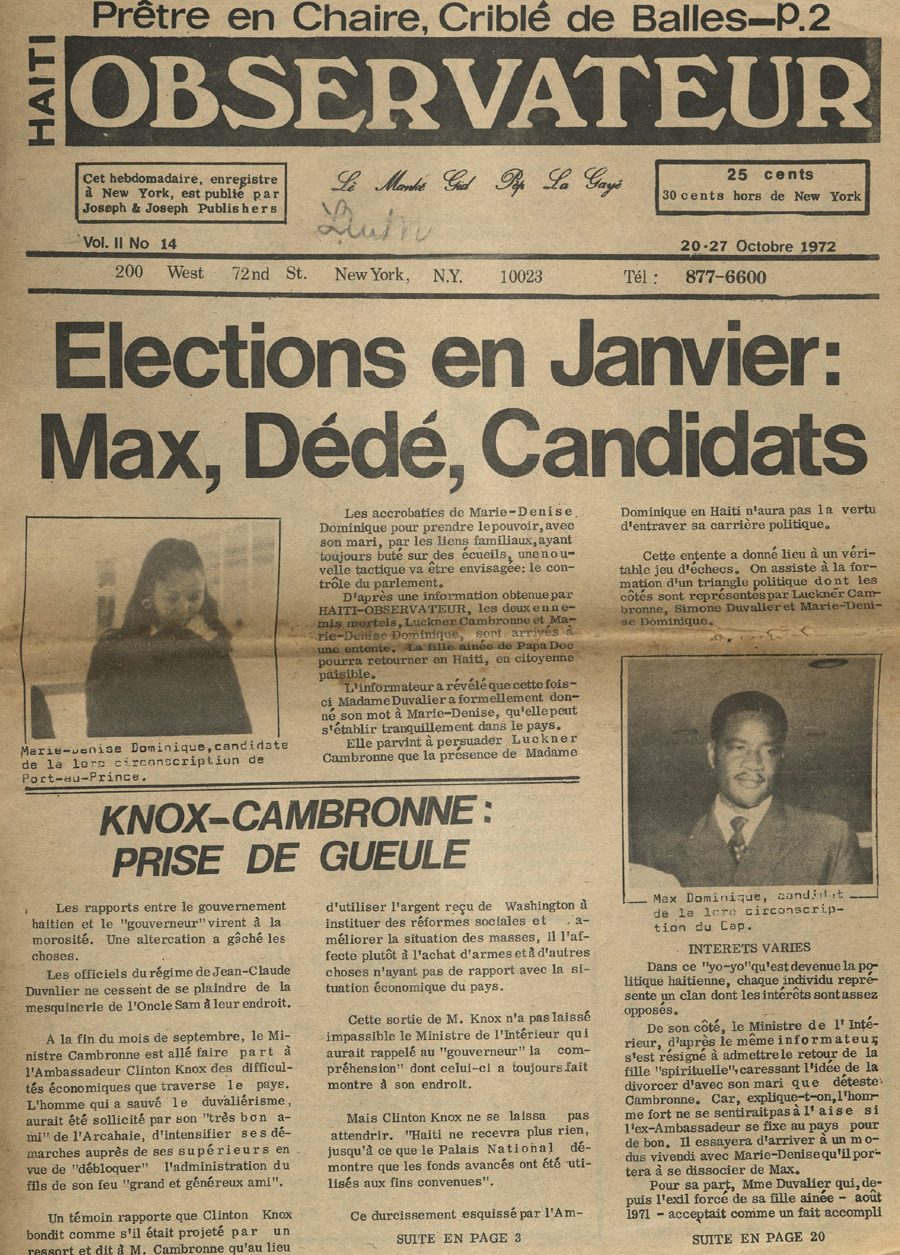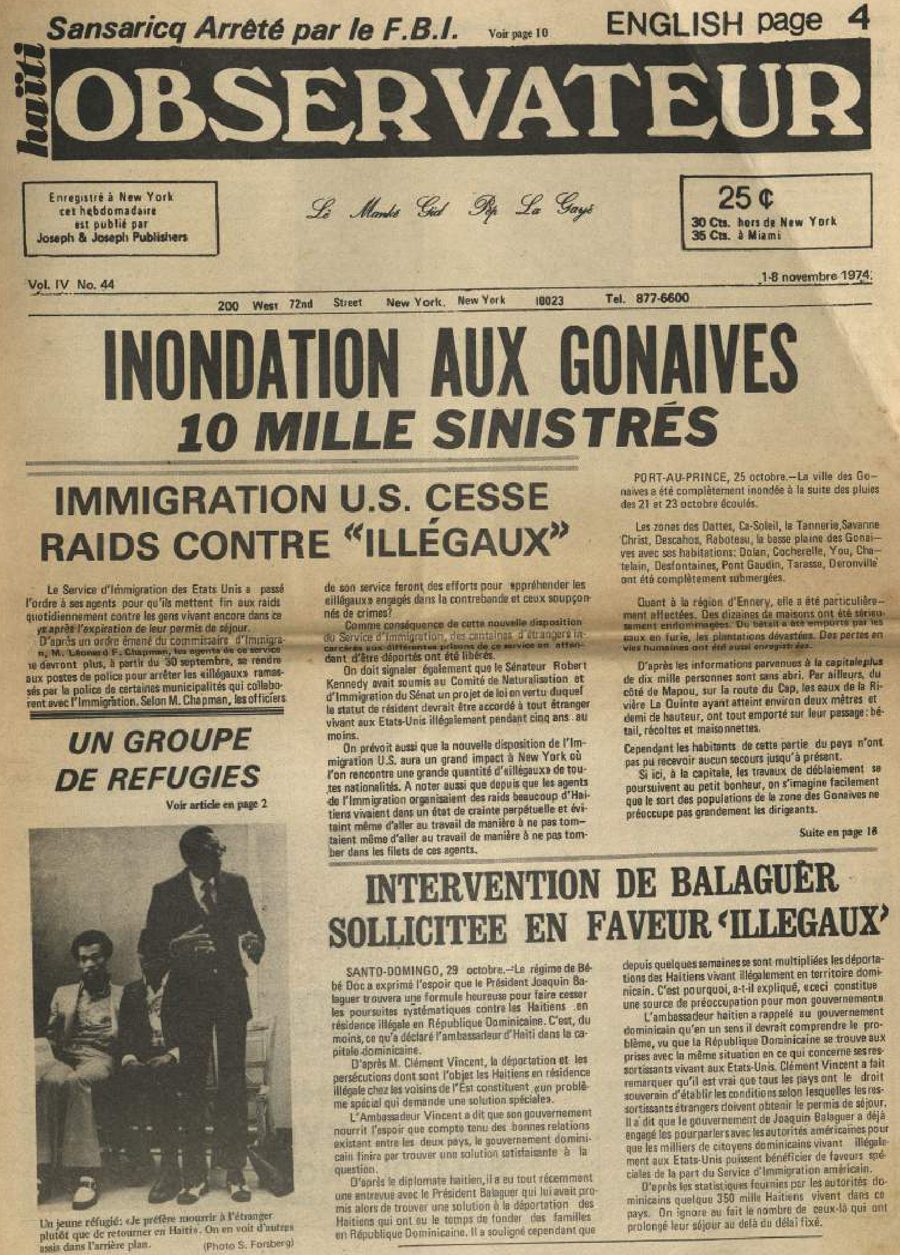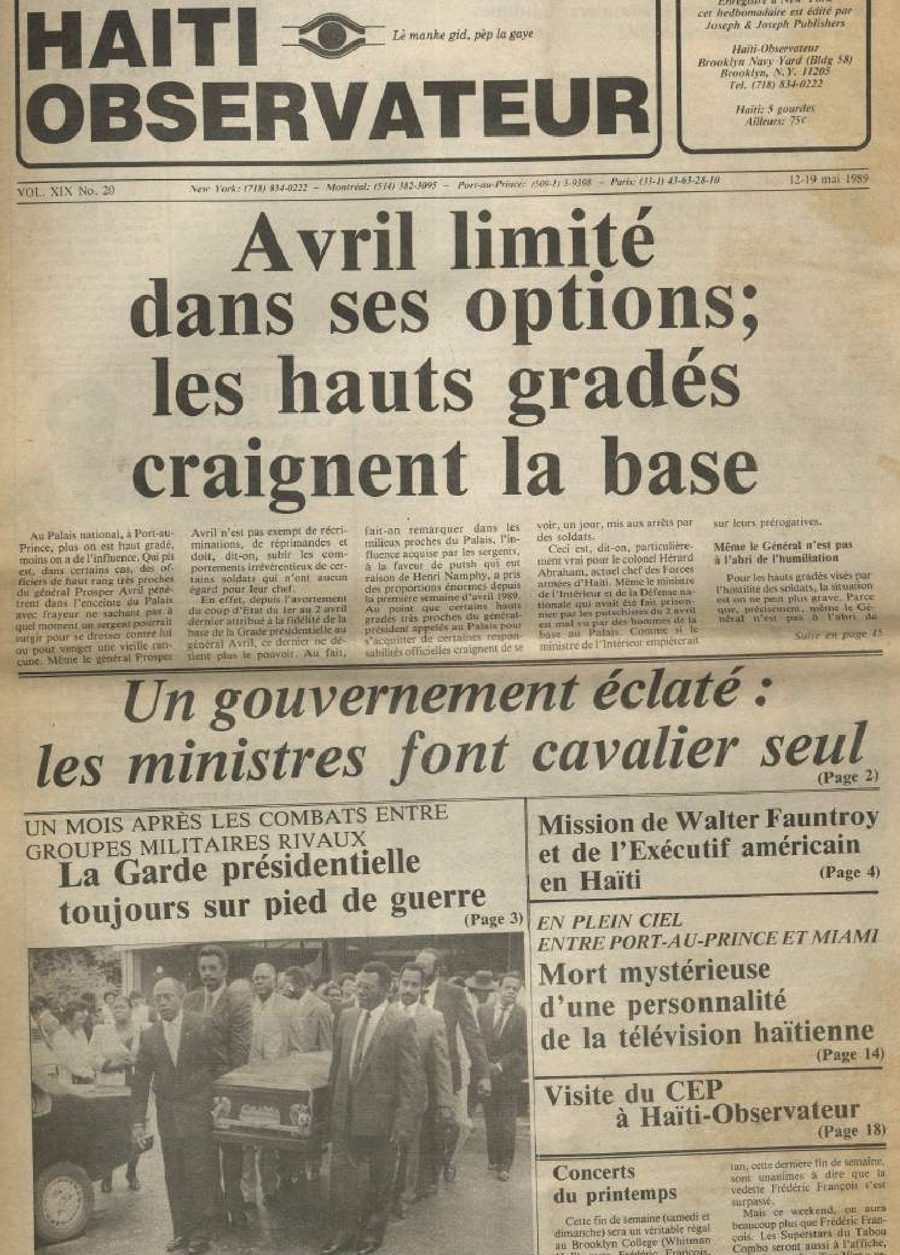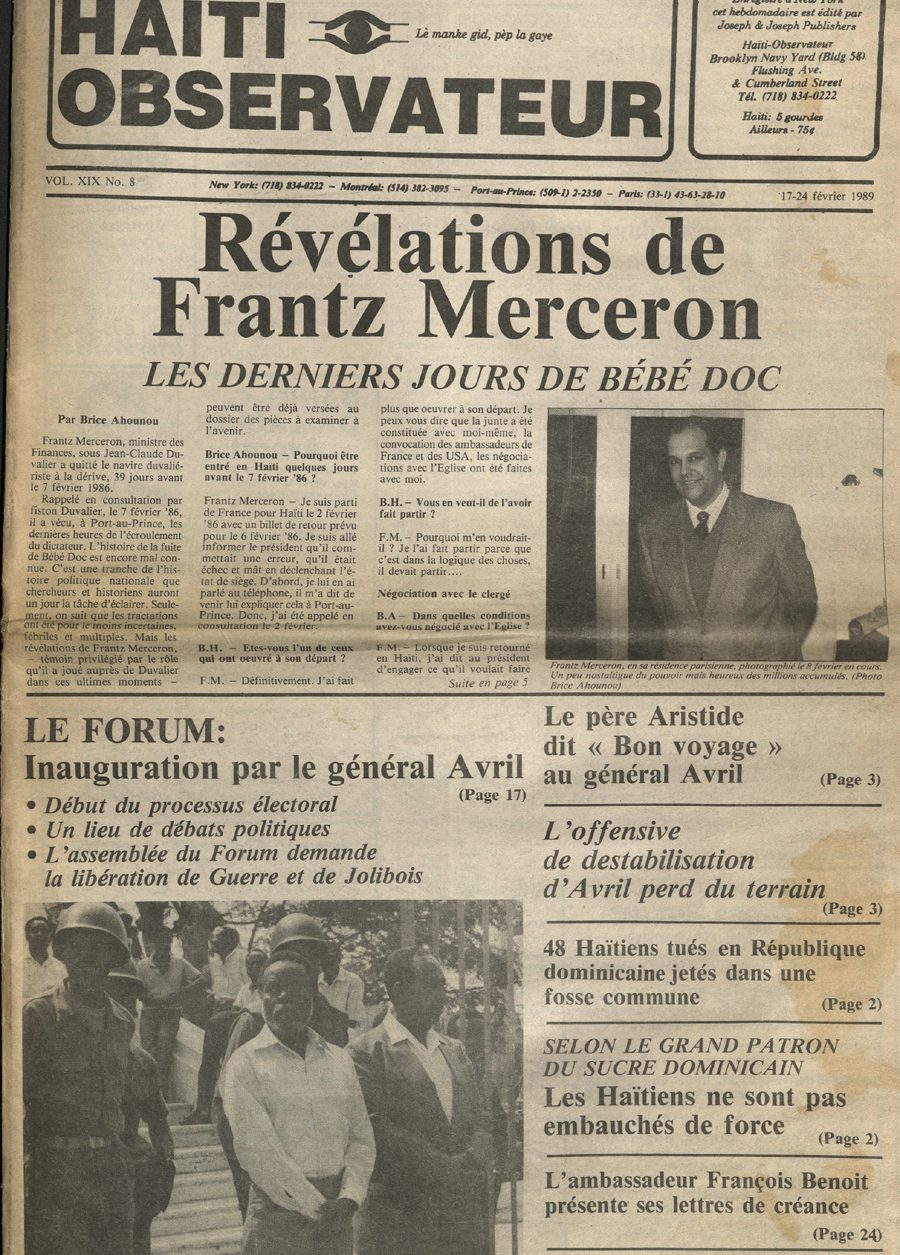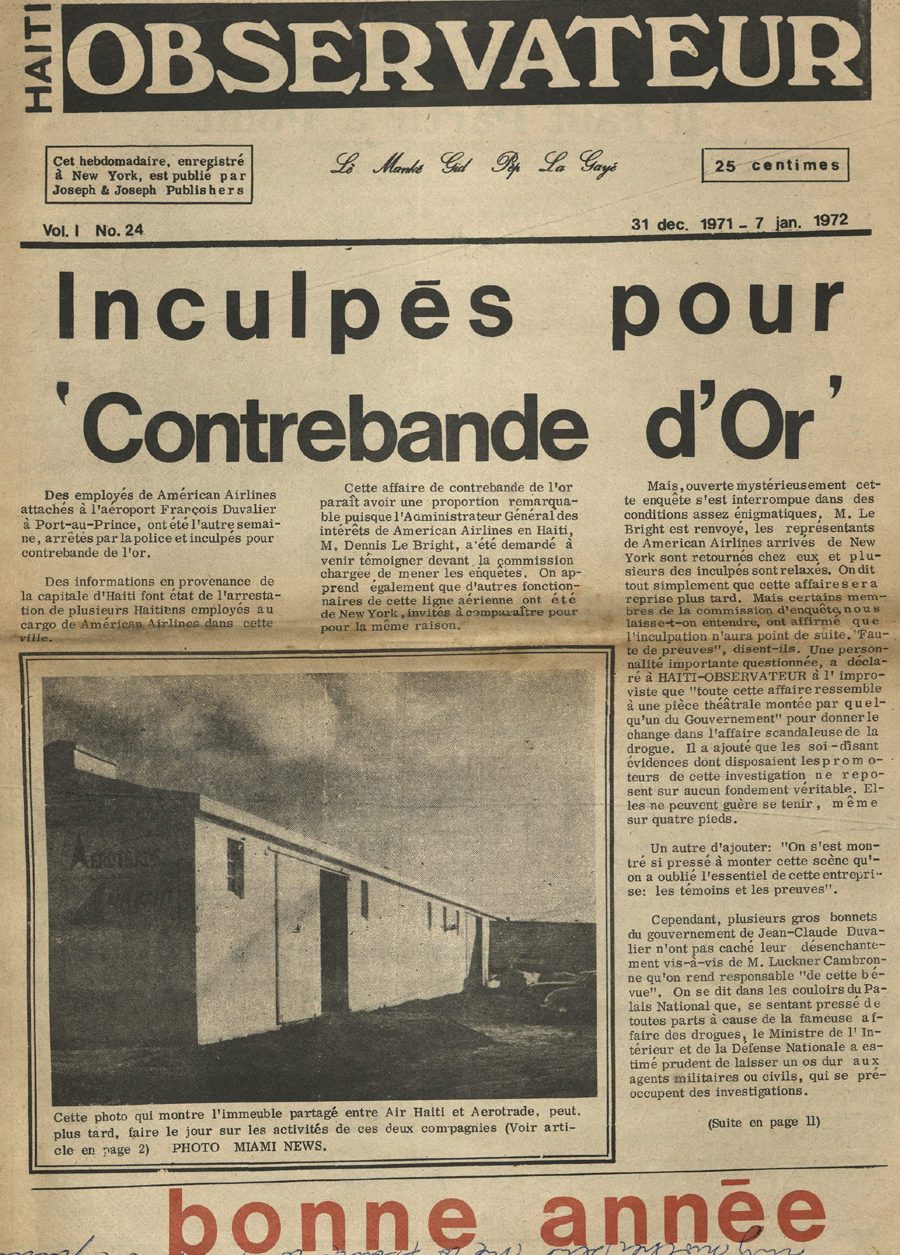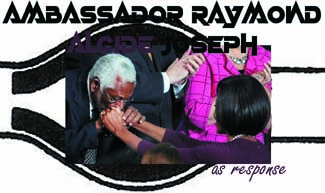
Raymond Joseph for Interim President By Raymond Alcide Joseph
I was flattered when I read the October 24 editorial in The New York Sun entitled “A Tribune of Democracy for Interim President of Haiti” because it was about me. The editor stated that “with the savagery of events in Haiti” aggravated by the “kidnapping of 17 Christian missionaries.” 16 of whom are Americans, Haiti is out of control. Consider that “in Haiti, there’s no head of state, no elected prime minister, no working legislature, no functioning national police, nor supreme court.” And he asked, “To whom could the international community turn?”
His “endorsement for interim president would be Raymond Joseph” and he ticked off my qualifications, minimizing my 90 years— for good reason. I am very active, he says, “writing weekly for his own newspaper, and working for democracy from dawn to dusk.” Letting you in on a secret, my weekly columns include one in Creole, one in English and a third in French. In addition, I adapt the French editorial in English. Yes, I am capable, if I must say so. But I salute the editor for his honesty when he writes about my reaction to his vision for me: “When we have put the question to Mr. Joseph, he demurred and forcefully.”
I thank all those who called, texted and emailed to congratulate me for such a laudable endorsement from The New York Sun. But there’s one distractor, an old Duvalier supporter who should be enlightened. He published the editorial with this short introduction in Creole: “Here’s the CIA agent from the 1980s that they’re proposing for Haiti interim president. They’re hell bent on grabbing our gold and iridium.” This “Mr. Carl at 514 in Montreal, Relief Haiti D’abord” can’t be taken seriously when he referred to me as a CIA agent in the 1980s when I was still a reporter at the Wall Street Journal before joining the staff of the Haiti-Observateur in September 1984 after I resigned from the premier financial daily.
I feel uplifted by Raymonde Estimé, the daughter of the late President Dumarsais Estimé (1946-1950), one of Haiti’s most progressive heads of state, if not the only one in modern times to have taken at heart the development of the country. In an extensive e-mail, Ms. Estimé shows that she was ahead of The Sun’s editor in her appreciation of me as the leader who could save Haiti. She dug up a memo she wrote in 2012 to the representative of a coalition that was interested in changing the narrative on Haiti.
Ms. Estimé wrote: “[When] my friend announced the formation of a coalition of all the candidates of 2011 (of which she was part) to present a SINGLE candidate, my question was this: What does Raymond Joseph say? I am addressing myself to the 2011 [presidential] candidate. More than ever before, the country needs you. For too long, Haiti has been excoriated by all nations. We must have a man who will restore a system of values. We need a man who understands that there should be a Marshall Plan economically as well as a Moral Plan to put Haiti back on the world’s map.”
The words of Ms. Estimé are compelling. And my son Pierre texted me the same day the editorial appeared, saying: “You demurred forcefully, but would you answer the call?” My response was curt but to the point: “Yes, I would.” But there are prerequisites. Both morally and administratively, I refer all to my work at the Haitian Embassy in Washington (1990-1991 and 2004-2010).
I will let Ms. Estimé testify. “From our meeting at the Embassy in Washington, what remains with me is that he’s a man of rare human qualities, a political man of great value with extraordinary knowledge of our country and of the Haitian soul.”
Needless to say, it is a wonderful feeling to read about what others think of oneself. Yet, I am greatly saddened that one that I thought was poised to change our country after the wretched dictatorship of the Duvaliers (1957-1986) has let down the whole country. I refer to the priest of the poorest parish in Port-au-Prince, Jean Bertrand Aristide, who got sidetracked by power and corruption, even setting up his own gangs. In the process, he became a multi-millionaire on an annual official salary of $100,000. His building of a university that bears his name can’t be considered atonement.
Changing Haiti for the better is doable, if those in this hemisphere and elsewhere for whom Haiti has become a perpetual problem accept their part of the blame for getting the country in the state it is today. They can decide to pull together in a Marshall Plan for Haiti. There’s no forgetting that Haiti’s economy was hampered soon after independence in 1804 by an international embargo declared by the enslavers who were angered about the disruption of their economy which was based on slavery and which was disrupted when our ancestors were first to defeat the enslaving French. Moreover, by 1825, Haiti’s economy was mortgaged when French King Charles X, using gun boat diplomacy, militarily imposed an indemnity of 150 million gold francs on Haiti for properties lost, including slaves. That amount, reduced to 90 million francs, is estimated at more than $21 billion in today’s dollars. Haiti finished paying that debt in 1947, when the precursor of New York’s Citibank collected the last payment. As it is, that bank began operating in Haiti during the American occupation of 1915-1934 and was also involved in transferring the gold reserve of the Haitian Nation Bank to New York.
In recent years, Haiti’s economy suffered when President Clinton helped in destroying rice production in Haiti, with rice being the main stay of the Haitian diet. In March 2010, the Special Envoy that he was for the United Nations in Haiti, Mr. Clinton apologized to the Haitian people for what he did. Moreover, in an April 1st interview that year with Amy Willentz and Kim Ives, he was frank. Of destroying rice production in Haiti, he said: “It has not worked. It may have been good for some of my farmers in Arkansas, but it has not worked. It was a mistake that I was a party to. I am not pointing the finger at anybody. I did that. I have to live every day with the consequences of the lost capacity to produce a rice crop in Haiti to feed those people, because of what I did. Nobody else.”
But what can President Clinton, co-chairman with Haitian Prime Minister Jean Max Bellerive, of the Interim Commission to Rebuild Haiti (French acronym CIRH) tell us about the $10 billion that the United Nations had collected after the 2010 earthquake, from some 130 countries, to “build Haiti back better?” For sure, the Special Envoy was not at the headquarters of the UN in New York, but he would know at least about the approximately $4 billion of the money supposedly disbursed for Haiti. How come Haiti has become more of a basket case after all that money raised for its betterment?
The same must be asked of the Haitian authorities who made $4.2 billion of the PetroCaribe Fund disappear between 2008 and 2017, especially under President Michel Martelly with his Prime Minister Laurent Salvador Lamothe and the slain President Jovenel Moïse.
The off-shore countries, where much of the stolen funds for Haiti are safely kept, should cooperate with a new Haitian government working transparently in claiming what is owed to the country. Even the Dominican Republic, next door, which allows former Haitian officials, like Mr. Bellerive, to invest their loot in their country, should cooperate with any reform-minded government in the repatriation of Haiti’s money.
The reparations owed Haiti, the misspent or stolen billions of dollars that were earmarked for Haiti following the 2010 earthquake and the other billions of the PetroCaribe Fund would be enough seed money to start the Haiti Marshall Plan.
But before anything can really be undertaken to get Haiti back in business, whether with me or with any other interim president, the situation of the gangs creating havoc in Haiti must be addressed first. I won’t tire in repeating the Creole slogan I launched two months ago: “As long as the gang issue isn’t dealt with, nothing can be dealt with in Haiti.”
RAJ, 301-335-5063; rajo31@yahoo.com
Cet article est publié par l’hebdomadaire Haïti-Observateur VOL. LI, No. 42 New York, édition du 3 novembre 2021, et se trouve en P. 13 à : h-o 3 nov 2021


